2022 Next Generation Water Summit
June 15-16, 2022
Cancelling your registration will remove your access to the event. If you proceed, you will no longer be able to participate or access event-related materials.
Deleting your account will remove your access to the event.
Andrew Erdmann is a water conservation specialist for the City of Santa Fe. Andrew has been working in water rights and water management in Santa Fe since 2008 when he completed his masters degree at UNM and went to work for the New Mexico Office of the State Engineer. Andrew has been working for the City of Santa Fe since 2014 and his work includes water conservation, policy development, and water resource planning.
As our planet gets warmer, precipitation patterns change, wind currents shift, and ocean temperatures rise. Climate change has profound implications for water supplies. This presentation explores the increasing impact on stream flows, lake and reservoir levels, hydropower production, and the availability of water for farms and cities. Scientists predicted that climate change would occasion more extreme weather events. The last few years have produced extraordinarily powerful hurricanes, momentous storm surges, unprecedented flooding and historic forest fires. In the United States, these events caused loss of life and property, disabled critical infrastructure (including power plants), and displaced hundreds of thousands of people. The Colorado River Basin is being particularly hard hit in the current drought. Rising heat and lower precipitation levels are leading to the lowest flow levels in decades. Each basin state is addressing, but in much different ways. Glennon calls for adapting to these changed conditions by building resilience into our water management institutions. He advocates borrowing principles of risk mitigation developed by hedge funds, insurance companies, and commodity markets to the world of water, as well as increasing conservation and water reuse at all levels and in all sectors.
Water reuse is not an option in the west. Graywater is often an untapped resource even though it can extend our existing water supplies. This presentation will highlight key western states and show how regulations can promote or discourage the uptake of this critical resource. We’ll also cover programs, incentives, and the future direction of the graywater market.
This 2-person panel will bring our audience up to speed on the newly announced outdoor watering restrictions in both southern California and the East Bay area, why they came into being, and what the short and medium-term outlook is for both locales.
Effective Policies, Enforcement Programs, Drought Communications: See how the California Water Efficiency Partnership, a chapter of the Alliance for Water Efficiency, updated its Water Shortage Toolkit to help its members align water shortage plans with new state regulations and create innovative and practical programs based on lessons learned from the previous drought.
Join Christoph Lohr, Dan Cole and Mike Collignon as they return for another conversation about standards and water efficiency. They'll discuss a few select proposals to the WE Stand, including the content, intent and prospects for passage.
We'll hear about current water conservation efforts at the federal, regional and local levels. We'll also examine key takeaways from Day 1 of the Summit, and our experts will let us know what more can be done at all three levels.
2022 Next Generation Water Summit has brought over 30 speakers covering a wide range of water-related topics. In this session, we will recap the top 5 key takeaways from the Summit co-founders and solicit input for the 2023 NGWS.
Join Hope Medina and Mike Collignon as they resume their conversation from last year about water efficiency in the codes. They'll discuss a few select proposals to the I-Codes, including the content, intent and final outcomes.
The Santa Fe Water Resources Indicator (Indicator) is a quantitative tool used to summarize water availability to the City and County
Water Utility systems and is being considered as a method to inform seasonal
conservation policy. The Indicator could be used in the spring of each
year to help define what water use restrictions City and County Utility
customers should expect during the remainder of the year. The Indicator,
as a transparent, quantitative definition of seasonal water resources
availability in Santa Fe could be helpful for explaining to Utility customers
why they are or are not subject to water use restrictions in a given year.
The Santa Fe Water Resources Indicator uses quantitative metrics to assign a local, Water Utility specific outlook
somewhere between zero (0) at the driest to ten (10) at the wettest. A value of zero (0) means the Utilities cannot provide
water in a sustainable way during the current year; supplies are inadequate, and the Utilities need extreme demand management in the current year. A
value of ten (10) means that water can be provided sustainably to Water Utility customers in excess of projected demand during the current year. The
Indicator is currently an idea being piloted, but could be used to guide conservation policy. Any conservation policy (demand management) that
might be put in place as a function of Indicator level would be designed
through a publicly informed conservation planning process.
Kim O’Cain is President of O’Cain Consulting, a water conservation consulting firm in Santa Monica, CA with over twenty years of experience developing and implementing water conservation and efficiency programs, policies, and outreach for public agencies and businesses. Before starting her consulting firm in 2017, she managed the City of Santa Monica’s water conservation unit including the adoption and enforcement of green building and water neutrality ordinances and drought management. Kim is also an Adjunct Professor at Santa Monica College teaching Sustainable Systems and Technology courses and on the APA Water and Planning Network Steering Committee
Multifamily housing development continues to grow regardless of the direction of the economy. As it is a higher population density approach, it also has a higher impact on infrastructure. This session will focus on multiple multifamily case studies and the strategies implemented to reduce water use, as well as the projected impact of water use. Additionally, there will be a discussion on how the projects were verified and how the "projected" water use compares to the "actual" water use..
Human factors may not feature prominently in the parameters that drive efficient water use in urban landscapes. However, human factors may drive the biggest gains in the efficiency of water use in water limited landscapes. In this presentation, we will unpack our research on how these human factors impact efficient water use. For example, our research has consistently shown that the potential for water shortage is the most important factor that will drive humans to reduce water use.
Sample 8
Doug is a lifetime American Rainwater Catchment System Association (ARCSA) member, an Accredited Professional and an ex-Board member of ARCSA. He is a prolific writer and his articles have appeared in The New York Times, Water Efficiency Magazine, Home Power, Taos News and Water News, among others. He also has a regular monthly column in the Santa Fe New Mexican. He is co-author of two water studies that have been widely published: “Rainwater Harvesting Industry Market Size and Trends” and “First-Ever Long-Term Water Conservation Rebate Study”.
Doug is an EPA WaterSense Partner with Certification in Irrigation Auditing. He is an active member of the City of Santa Fe Water Conservation Committee. He is currently a member of the International Code Committee (ICC) working group that is drafting the ICC Rainwater Harvesting Building Codes. Doug is also a certified Permaculture Designer. Doug designs and consults on rainwater and water reuse systems locally and around the country.
"The West has been experiencing a long-term growth. COVID has accelerated that migration of people to the West, driving an explosion of housing starts. This session will explore that dynamic growth and its impact on water in a region plagued with water supply concerns."
Multifamily housing development continues to grow regardless of the direction of the economy. As it is a higher population density approach, it also has a higher impact on infrastructure. This session will focus on multiple multifamily case studies and the strategies implemented to reduce water use, as well as the projected impact of water use. Additionally, there will be a discussion on how the projects were verified and how the "projected" water use compares to the "actual" water use.
Sample 4
The 22-year megadrought in the southwest is real. Growth continues to happen. This panel will explore how different strategies are employed for managing these conflicting realities..
Rainwater catchment for irrigation is well understood and installed in tens of thousands of homes in the U.S. However, drinking rainwater is not as well understood, and yet it is a possibility that can assist us with our growing water needs. David will review what is required to make these systems work and increase our water security and supply.
"Commercial establishments represent an untapped sector for water savings. This panel will review massive water savings in restaurants, hotels, and retail office centers. The why, the how, and the what?"
Water and energy are indispensable in our lives and both heavily intertwined. As PNM continues on its path to 100% emissions-free energy by 2040, the shift to clean energy, strong emphasis on energy efficiency programs and optimization of water use are resulting in significant water savings. This talk will focus on PNM’s present state and “journey to zero” and how the company’s actions are helping to build a sustainable water future.
WaterSense Labeled Homes has been around for over a decade, but the new Version 2 represents a fundamentally new approach for the program. The new version of the program offers more flexibility by focusing on water savings performance and includes other important changes in how the program is run. All this with the aim of expanding the reach of the program and increasing the water savings realized at the community level. This session will review these changes and present field data on water use in WaterSense labeled homes in the Las Vegas, NV region where the new version of the program was piloted. Attendees will see the field results of actual water usage which clearly shows that when water efficiency is built in from the start, tremendous savings are possible!
2022 Next Generation Water Summit
June 15-16, 2022
2021 Next Generation Water Summit
June 2-4, 2021: 9am – 1pm MT
 19 May 2022 09:00 AM
19 May 2022 09:00 AMRobert Glennon is a Regents Professor and Morris K. Udall Professor of Law and Public Policy in the James E. Rogers College of Law at the University of Arizona. He received a J.D. from Boston College Law School and an M.A. and Ph.D. in American History from Brandeis University. He is a member of the bars of Arizona and Massachusetts. The recipient of two National Science Foundation grants, Glennon serves as an advisor to governments, corporations, think tanks, law firms, and NGOs looking to solve serious challenges around water sustainability and planning.
 19 May 2022 10:30 AM
19 May 2022 10:30 AM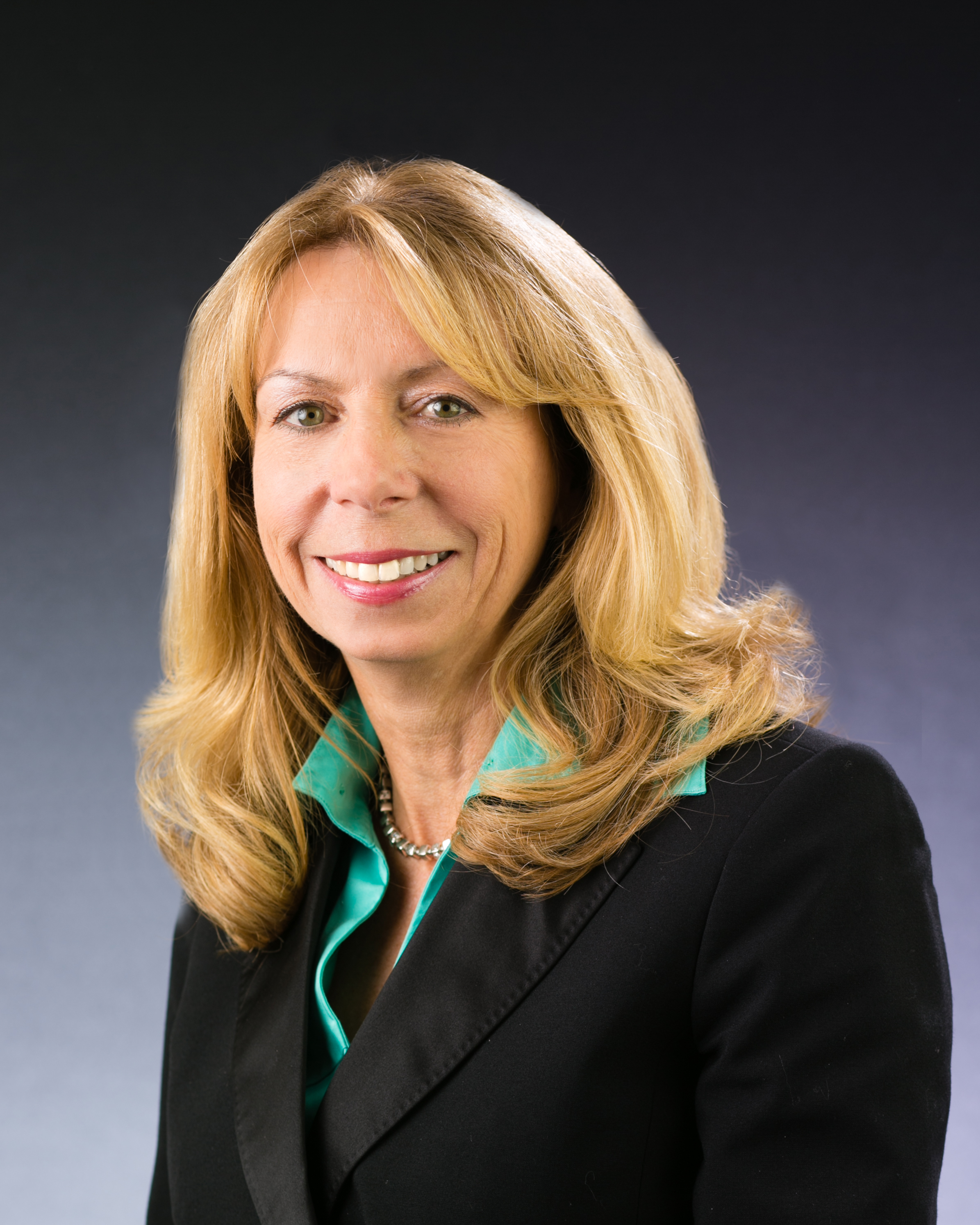 Panelist
PanelistMaureen Gannon is Chief Environmental Officer for PNM, a vertically-integrated electric utility, headquartered in Albuquerque, New Mexico, that serves about 800,000 customers in New Mexico and Texas. She is responsible for developing and implementing PNM’s sustainable business strategy and the overall management of PNM’s environmental commitments. Maureen manages corporate environmental policy and implementation and environmental compliance of air, waste and water emissions at electric generation facilities and transmission/distribution facilities. She also oversees PNM’s Environmental Management System performance. Maureen serves as PNM’s primary environmental contact with federal, regional, state, and local agencies, as well as other utilities, business organizations and environmental and other stakeholders and represents the company on environmental policy boards and forums. Maureen has 26 years of electric utility experience. She is currently PNM Resources’ representative on the Edison Electric Institute’s Environmental Excellence Advisory Committee and serves on the Electric Power Research Institute’s Energy and Environment Executive Committee and Advisory Council. Maureen is also a board member of the ARCA Foundation. She holds an M.B.A. from the University of Phoenix and a B.S. in Chemical Engineering from New Mexico State University.".
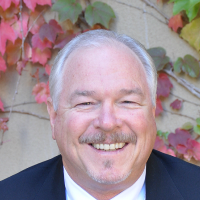 Panelist
Panelist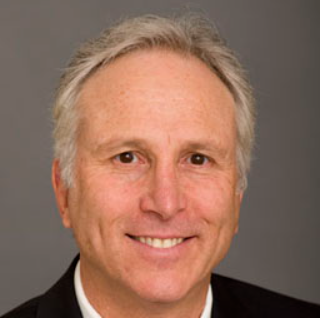 Moderator
ModeratorGlenn Schiffbauer, Executive Director of the Santa Fe Chapter of the New Mexico Green Chamber of Commerce, is a native New Mexican. He received his BBA from New Mexico State University and his MBA from the Robert O. Anderson School of Management at the University of New Mexico. After 16 years in management at renowned Rancho Encantado, he started two small businesses in Santa Fe. He also worked with his wife Kim as a consultant for businesses statewide in both marketing and public affairs. In 2005, he became a liaison and project manager for Robert Redford in New Mexico working on a variety of projects from film to governmental to green construction. In October 2012, he became Executive Director for the newly founded Santa Fe Chapter of the New Mexico Green Chamber of Commerce. Glenn is also a Co-Chair of the Next Generation Water Summit.
Mike is the Water Resources Manager for the Public Service Company of New Mexico, New Mexico’s largest electric utility. His focus is to ensure a sustainable supply of water for PNM’s generating facilities that require water for cooling. Mike is very proud that PNM uses 33% less fresh water to generate a megawatt hour of electricity today than it did in 2002. Now in his 24th year with PNM, Mike has worked in Economic Development, Generation Asset Development and now in Water Resource Management. Prior to that he did a tour of duty with the U.S. Navy, graduated from New Mexico State University, and worked for IBM.
 19 May 2022 10:30 AM
19 May 2022 10:30 AM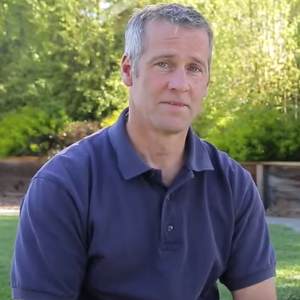 Speaker
Speaker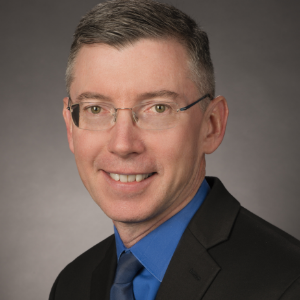 Speaker
SpeakerCharles Bohlig has been with East Bay Municipal Utility District since 2004 where he currently is the Supervisor of Water Conservation. In this role, he creates and implements their incentive programs, administers their transformation into an informational services group, and directs their water budget program. He is also the District’s lead on implanting the State’s Long Term Framework water conservation plan. While at EBMUD, he has co-authored two, 10-year Water Conservation Master Plans, three Urban Water Management Plans, as well as forecasting water conservation’s savings in the 2050 District’s Demand Forecast. Before joining EBMUD, Charles was an Energy Analyst for Pacific Gas & Electric Company. He has over 25 years of experience in water and energy resource management and currently serves on the Board of California Water Efficiency Partnership (CalWEP).
Brad Coffey Brad Coffey leads Water Resource Management at the Metropolitan Water District of Southern California. In this role, his team plans for the region’s water supply, manages imported and local water supply programs, advances conservation, and prepares for drought and a changing climate. Brad has more than 30 years of experience in improving the quality and reliability of the Southern California’s water supply.
 19 May 2022 11:30 AM
19 May 2022 11:30 AMWith the passage of HB 2 in 2021, taking effect on April 1, 2022, many questions about the impact of this new law making recreational cannabis sales legal in New Mexico emerged. Many legal issues came to the forefront, but what about a new agricultural use of water? This panel will delve into the potential impacts that this nascent New Mexico industry could have on our water supplies.
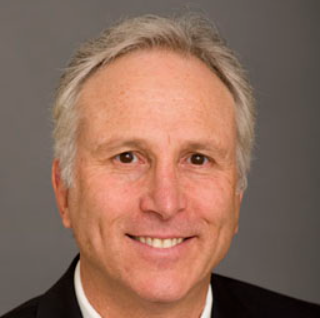 Moderator
ModeratorGlenn Schiffbauer, Executive Director of the Santa Fe Chapter of the New Mexico Green Chamber of Commerce, is a native New Mexican. He received his BBA from New Mexico State University and his MBA from the Robert O. Anderson School of Management at the University of New Mexico. After 16 years in management at renowned Rancho Encantado, he started two small businesses in Santa Fe. He also worked with his wife Kim as a consultant for businesses statewide in both marketing and public affairs. In 2005, he became a liaison and project manager for Robert Redford in New Mexico working on a variety of projects from film to governmental to green construction. In October 2012, he became Executive Director for the newly founded Santa Fe Chapter of the New Mexico Green Chamber of Commerce. Glenn is also a Co-Chair of the Next Generation Water Summit.
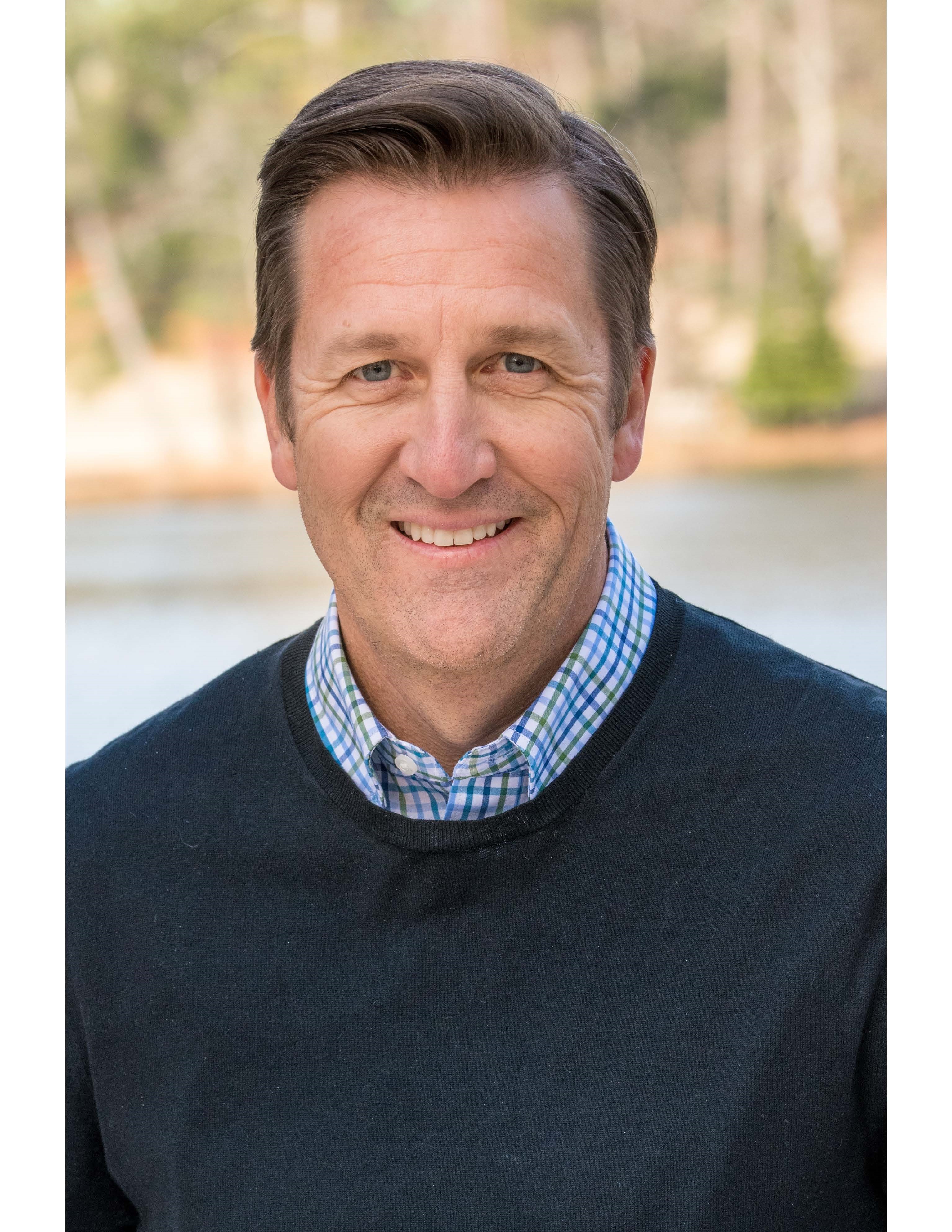 Panelist
PanelistAlan Hook is a Water Resources Coordinator within the Water Resources & Conservation section of City of Santa Fe Water. Alan previously received his Bachelor’s Degree in Environmental Studies from Warren Wilson College, NC. Alan has worked for the City of Santa Fe for fifteen years providing water resources planning, project management, hydrologic analysis, growth management, policy legislation and education & outreach. In addition, Alan is the project manager for the Santa Fe Municipal Watershed Program representing the City of Santa Fe in partnership with the U.S. Forest Service to protect the Santa Fe municipal watershed from wildfire impacts. Alan is directly involved with cannabis related businesses that are within the city limits to be compliant with the NM State code for recreational cannabis production, manufacturing or retail sales.
 Panelist
PanelistBen Lewinger is a public affairs professional with a history of working on projects that have moved New Mexico forward. He is currently the executive director of the New Mexico Cannabis Chamber of Commerce, a membership organization representing producers, manufacturers, testing facilities, and cannabis-adjacent businesses across NM, dedicated to the responsible growth of the cannabis industry.
 19 May 2022 11:30 AM
19 May 2022 11:30 AM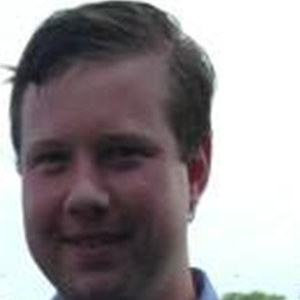 Panelist
Panelist"Brian Schmidt has been with the Portland Cement Association (PCA) since 2011. He has a degree in political science and economics from Carthage College and an MBA from the Lake Forest Graduate School of Management. Brian is responsible for forecasting and analysis of the Pacific and Mountain regions of the U.S. at PCA, as well as industry advocacy including energy & environmental issues."
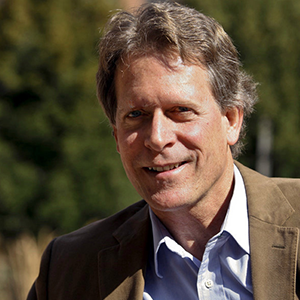 Panelist
Panelist"Brian Richter has been a global leader in water science and conservation for more than 30 years. He is the president of Sustainable Waters, a global organization focused on water scarcity challenges, where he promotes sustainable water use and management with governments, corporations, universities, and local communities. He previously served as Director of the Global Water Program of The Nature Conservancy, an international conservation organization. Brian has consulted on more than 170 water projects worldwide. He serves as a water advisor to some of the world’s largest corporations, investment banks, and the United Nations, and has testified before the U.S. Congress on multiple occasions. He teaches Water Sustainability at the University of Virginia.
Brian has developed scientific tools and methods to support river protection and restoration efforts, including the Indicators of Hydrologic Alteration software used by water managers and scientists worldwide.
He has published many scientific papers on the importance of ecologically sustainable water management in international journals. He co-authored a book with Sandra Postel entitled Rivers for Life: Managing Water for People and Nature. His latest book, Chasing Water: A Guide for Moving from Scarcity to Sustainability, has now been published in five languages."
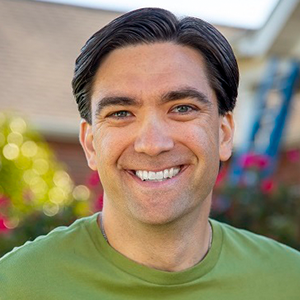 Moderator
Moderator"Mike Collignon is the Executive Director of the Green Builder® Coalition, an organization he co-founded in 2010. He engages in national and state-level advocacy and publishes regular content for Green Builder® Media. Mike is also the Chair of the WERS Development Group and the Co-Chair of the Next Generation Water Summit. Finally, he has served as the voice of Green Builder® Media’s online and in-person events from 2012–present.
 19 May 2022 01:15 PM
19 May 2022 01:15 PM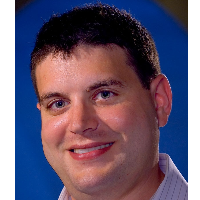 Speaker
SpeakerJonah Schein is the National Program Coordinator for Homes & Buildings at the U.S. Environmental Protection Agency’s (EPA) WaterSense® Program. He has overseen the technical development and implementation of the WaterSense Homes specification and certification system since their inception. He is also responsible for efforts to expand the WaterSense program’s reach in the multi-family and commercial sectors through analytics, modeling, and benchmarking. Prior to joining EPA in 2008, Mr. Schein served as the Director of Outreach for Earth Day Network (EDN) where he was responsible for a number of initiatives to promote water efficiency through green building strategies in the United States and Middle East. Mr. Schein holds Bachelor of Arts and Bachelor of Science degrees from Indiana University as well as a Master of Science in Environmental Science from the Johns Hopkins University.
 19 May 2022 01:15 PM
19 May 2022 01:15 PM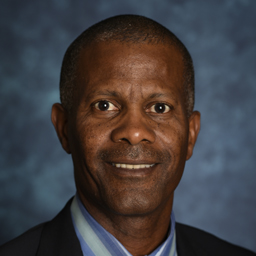 Panelist
PanelistRolston St. Hilaire is a professor and department head in the Department of Plant and Environmental Sciences at New Mexico State University. He teaches courses in landscape horticulture and environmental stress physiology. He holds a Ph.D. from Iowa State University. Dr. St. Hilaire’s research focuses on plant stress physiology, the development of tools that promote efficient water use in residential landscapes, and mapping and categorizing land cover in urban ecosystems. He is the author of the book “Landscape Plants for the Lower Rio Grande Valley” and has published over 126 papers in scientific journals and in the popular press. He has won awards for both his teaching and research and is the originator of the Mesa Glow™ bigtooth maple tree.
Kim Shanahan has been a green builder in Santa Fe, New Mexico since 1986 and a residential sustainability consultant since 2018. From 2008 to 2018 he was the executive officer of the Santa Fe Area Home Builders Association where he established the local chapter as one of the most sustainability-focused in the national federation. He successfully introduced and help shepherd approval of Santa Fe's Water Efficiency Rating Score (WERS)® into the 2020 National Green Building Standard where it was revised to become the non-proprietary national Water Rating Index.
 19 May 2022 02:15 PM
19 May 2022 02:15 PMPatti Aaron will provide information on the current state of hydrology in the Colorado River Basin, which is entering its 23rd year of drought. She will also discuss collaborative actions being taken to mitigate the effects of the drought.
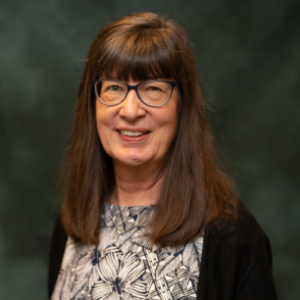 Panelist
PanelistPatti Aaron will provide information on the current state of hydrology in the Colorado River Basin, which is entering its 23rd year of drought. She will also discuss collaborative actions being taken to mitigate the effects of the drought.
 19 May 2022 02:15 PM
19 May 2022 02:15 PMSebastian is a mechanical engineer and owner at Everydrop Technologies, a small start-up focused on water conservation and affordable metering through the use of vortex technology. Graduating with his masters in mechanical engineering in 2018, he has a track record of developing quality products for the tech industry over the past 4 years. It is his belief that water saving products are critical to the sustaining of communities across the West and Midwest as droughts continue to affect the nation. With this belief, Everydrop Technologies has a product that is reliable, accurate, and uniquely accessible to people interested in saving their water and making better decisions about how much they consume on a day-to-day basis.
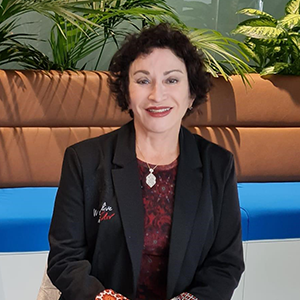 Panelist
Panelist Janice Gould has spent the past fifteen years dedicating her time and passion to irrigation. She has become a strong advocate for water conservation and improving water management and sustainability to preserve the environment and create a livable planet. Her main focus has been in developing and distributing a disruptive irrigation technology through her company, Responsive Drip Irrigation, LLC (RDI). RDI is a US- based company that has its main office in Bradenton, Florida and is currently working on projects in California and other water-stressed states in the western United States. Working with the Abu Dhabi Investment Office, Jan has also established a manufacturing and distribution facility in the Khalifa Industrial Zone Abu Dhabi. Currently, she is collaborating with the Abu Dhabi Agricultural & Food Safety Authority, along with AgTech companies that offer innovative solutions to launch RDI’s Global Sustainability Center in Abu Dhabi, which is focused on the research and development for best practices in agriculture.
Laureen holds Bachelor's and Master's degrees in architecture from the University of
Illinois and is a licensed architect in Illinois & Wisconsin as well as having received approval for reciprocal licensure across the country via NCARB certification. She has also built a successful 30-year+ practice in the design and construction of commercial buildings, multi-family projects, single family homes, and interiors. Additional experience includes ratings, inspections, and certification application processing for a variety of commercial &
residential properties through LEED BD+C, LEED ID+C, LEED for Homes & LEED
for Homes Mid-Rise, Energy Star Homes & Energy Star Multifamily High Rise, Enterprise Green Communities, and the WERS (Water Efficiency Rating Score).
Other accreditations & certifications include USGBC LEED® for Homes QAD, RESnet/HERS Energy Rater, LEED for Homes Green Rater, LEED AP BD+C, LEED AP HOMES, USGBC LEED® Faculty™, and WERS Faculty & Verifier.
Raised in Breckenridge, Colorado and migrated to the Santa Fe area in the early 90’s, Miles is a product of the American West. He lives in Rio en Medio with a view of the Pojoaque Valley that will not quit, alongside his wife of 23 years, Mikahla Beutler and son, Tilman.
Prior to serving as executive officer for the Santa Fe Area Home Builders Association, Miles had a long career with New Mexico Labor unions, serving as a communications professional, organizer, and political coordinator for both the public sector, and the professional trades union locals. Most recently, he was a fundraising and communications coordinator at New Energy Economy, working to bring the Santa Fe community greater accessibility to local renewable energy resources.
Along with a tech savvy know-how, Miles brings his relationship building skills to the Association and is enthusiastically incorporating bold new ideas into the association’s already robust presence in the community.
New water savings technology will be part of our future. The technology thus far has enabled us to grow in many communities over the last decade without increasing water supplies. This panel will introduce two new technologies that may fit into our water conservation strategies.
 19 May 2022
19 May 2022 Panelist
PanelistCindy Wasser, MBA is the Senior Manager of Green Building Programs at Home Innovation Research Labs. In this role, she provides strategic support to the NGBS Green Certification program, and her efforts have contributed to the program becoming the leading green building certification program for residential construction. Cindy leads the development of new program features and tools that are utilized by verifiers and developers seeking green certification. In 2020, Cindy was recognized by Professional Builder magazine as a 40-under-40 rising star in the homebuilding industry.
Previously, Cindy was a consultant with ICF where she supported the implementation of the U.S. EPA’s residential labeling programs, namely ENERGY STAR, Indoor airPLUS, and WaterSense. In earlier roles, Cindy provided sustainability technical assistance at the National Association of Counties (NACo) and led community engagement efforts for the City Planning Department of Montpelier, Vermont. Cindy holds an MBA in Sustainability from Bard College and a B.S. in U.S. Environmental Policy and from Rutgers University.
 Panelist
PanelistCraig Connor is a national energy codes expert with a long history of working with the National Association of Home Builders on energy code developments. As a western Washington resident, he saw the relevance of a national Water Rating Index and shepherded the transition of Santa Fe's WERS program to become the WRI through the ANSI consensus process that established the 2020 National Green Building Standard.
 Moderator
ModeratorKim Shanahan has been a green builder in Santa Fe, New Mexico since 1986 and a residential sustainability consultant since 2018. From 2008 to 2018 he was the executive officer of the Santa Fe Area Home Builders Association where he established the local chapter as one of the most sustainability-focused in the national federation. He successfully introduced and help shepherd approval of Santa Fe's Water Efficiency Rating Score (WERS)® into the 2020 National Green Building Standard where it was revised to become the non-proprietary national Water Rating Index.
Kim Shanahan will lead a discussion with Cindy Wasser and Craig Connor on how the Water Rating Index (WRI) was established in the 2020 National Green Building Standard and how it can be used by water jurisdictions facing pressures of growth with limited and declining allocations of water. You can't manage what you're not measuring, especially new residential growth. The WRI is a predictive water-usage calculation tool based on a zero to 100 scale with zero being net zero water usage. The index can calculate projected gallons of annual usage and can predict how many new homes can be sustained by an acre foot of available water.
 19 May 2022 02:15 PM
19 May 2022 02:15 PM Speaker
SpeakerMelanie Stansbury is a Candidate for Congress and State Legislator, proudly representing New Mexico’s 28th District in the New Mexico State House of Representatives. Professionally Melanie works as a consultant and senior advisor to non-profit, philanthropic, and research organizations on strategies to help build a more sustainable world—with a focus on water security, natural resources, and community development. A sociologist by training, with a background in the natural sciences, Melanie has worked across the U.S. with federal, tribal, state, and local organizations, including as staff in the U.S. Senate Committee on Energy and Natural Resources and the Office of Management and Budget.
 Panelist
PanelistCongresswoman Teresa Leger Fernández represents New Mexico’s 3rd Congressional District. In Washington, she holds a leadership role with the Congressional Hispanic Caucus as Freshman Representative. Congresswoman Leger Fernández serves as chair of the Subcommittee for Indigenous Peoples of the United States for the 117th Congress. She has also been appointed to the House Committee on Education and Labor, the House Committee on Natural Resources, and the Committee on House Administration.
She is a 17th generation Northern New Mexican. Before coming to Congress, Leger Fernández worked as an attorney and advocate, and won important legal battles to advance voting rights, promote tribal sovereignty, and protect our environment and acequia waters. She has helped secure nearly a billion dollars for, and then helped build, schools, rural health clinics, broadband, businesses, affordable housing and critical infrastructure for New Mexico.
Glenn Schiffbauer, Executive Director of the Santa Fe Chapter of the New Mexico Green Chamber of Commerce, is a native New Mexican. He received his BBA from New Mexico State University and his MBA from the Robert O. Anderson School of Management at the University of New Mexico. After 16 years in management at renowned Rancho Encantado, he started two small businesses in Santa Fe. He also worked with his wife Kim as a consultant for businesses statewide in both marketing and public affairs. In 2005, he became a liaison and project manager for Robert Redford in New Mexico working on a variety of projects from film to governmental to green construction. In October 2012, he became Executive Director for the newly founded Santa Fe Chapter of the New Mexico Green Chamber of Commerce.
 19 May 2022 03:15 PM
19 May 2022 03:15 PM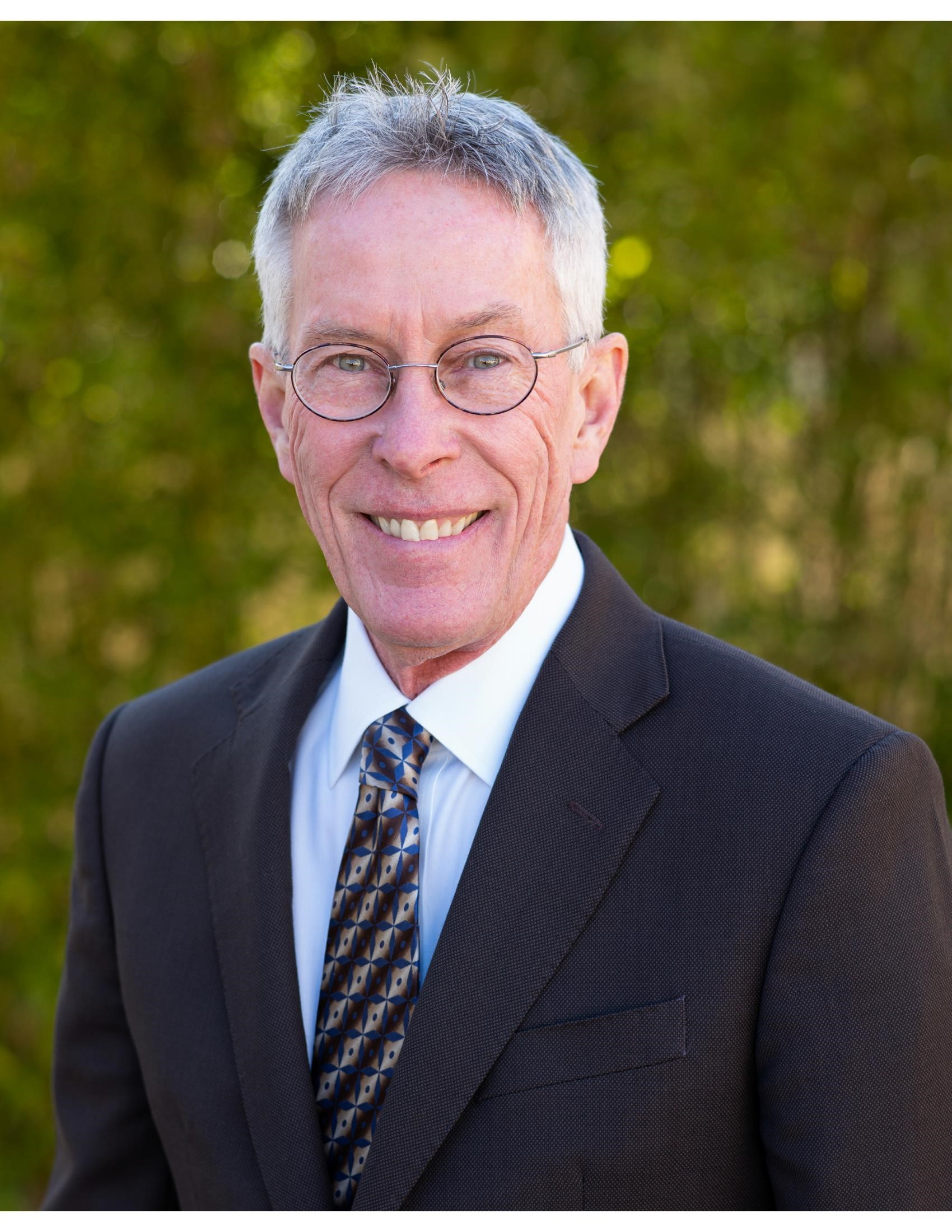 Panelist
Panelist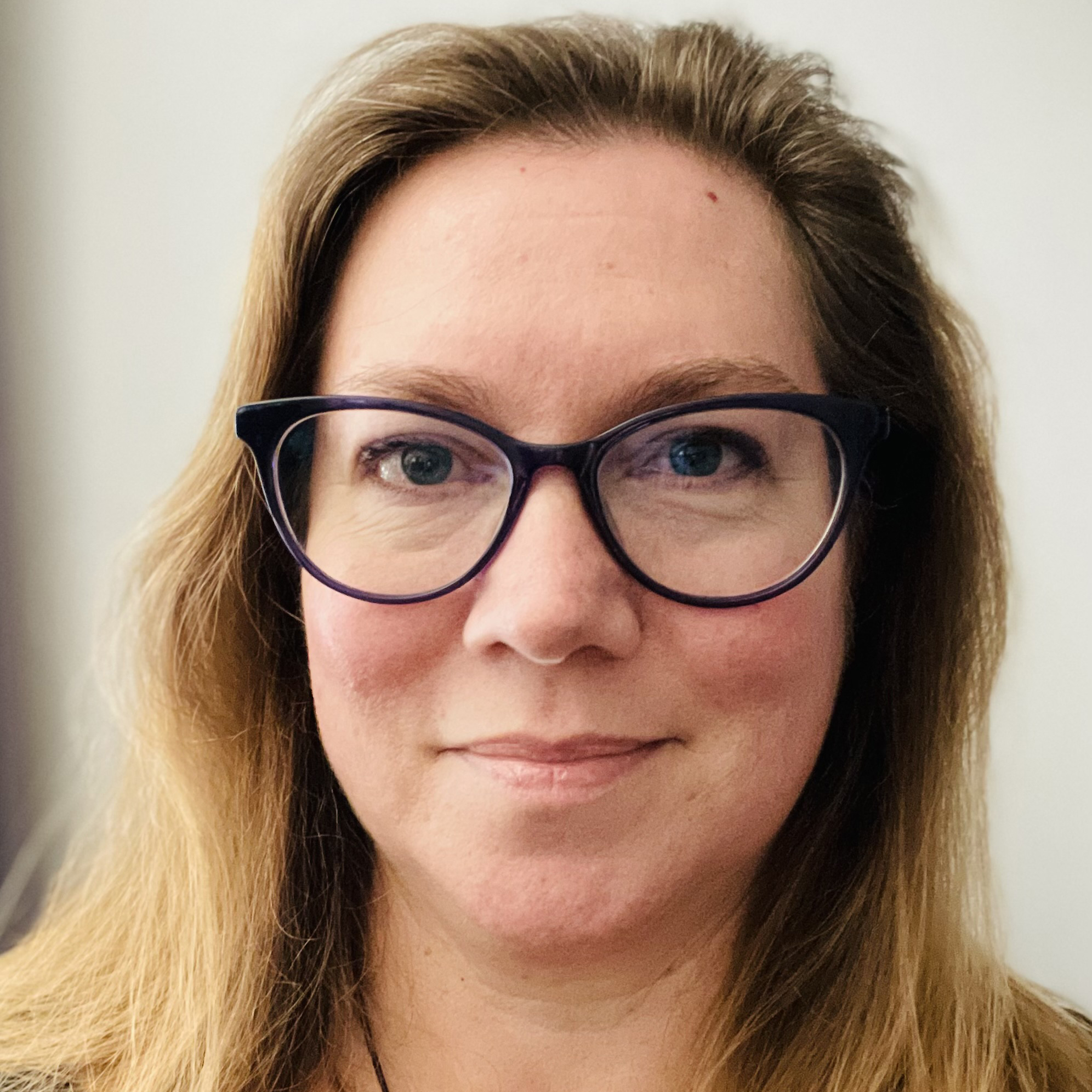 Panelist
Panelist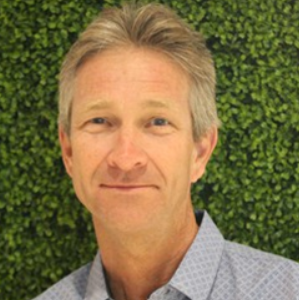 panelist
panelistMr. Burke became the CEO and President of the Alliance for Water Efficiency on March 22, 2021. Ron spent the first twenty years of his career working on environmental policy and programs as an Environmental Scientist for the U.S. EPA, the Environmental Health Director and Deputy Executive Director for the American Lung Association of Metropolitan Chicago, the Associate Director for the Illinois EPA, and Midwest Office Director for the Union of Concerned Scientists. More recently, he was Executive Director of the Chicago-based Active Transportation Alliance for nine years. Mr. Burke earned an M.S. from Washington University’s Department of Engineering and Policy and did his undergraduate work in life sciences at the University of Illinois, Urbana-Champaign.
Robert Glennon is a Regents Professor and Morris K. Udall Professor of Law and Public Policy in the James E. Rogers College of Law at the University of Arizona. He received a J.D. from Boston College Law School and an M.A. and Ph.D. in American History from Brandeis University. He is a member of the bars of Arizona and Massachusetts. The recipient of two National Science Foundation grants, Glennon serves as an advisor to governments, corporations, think tanks, law firms, and NGOs looking to solve serious challenges around water sustainability and planning.
 20 May 2022 09:00 AM
20 May 2022 09:00 AMBoth Congresswoman Leger Fernandez and Congresswoman Stansbury have extensive experience with New Mexico's water issues. Advocating for tribal rights, acequias, critical infrastructure as well as teaching New Mexicans about water issues, we are fortunate to have two U.S. Representatives who are savvy about water. This session will address our problems here in New Mexico and the Western states and we'll learn what our delegates are doing at the federal level.
Born and raised in New Mexico, Congresswoman Melanie Stansbury leads with determination and compassion. She has dedicated her career to finding solutions to water issues, poverty, and climate change — representing New Mexico in the Legislature and now in Congress. She is a champion of efforts to address hunger, food, and water insecurity, conservation and climate change, and economic development and recovery. Stansbury worked in communities across the state as a STEM educator, researcher on land and water issues, and served as a former staffer in the U.S. Senate Committee on Energy and Natural Resources and the White House Office of Management and Budget. As the Congresswoman from New Mexico’s 1st Congressional District, she is working hard to lift up the voices of our communities and tackle our biggest challenges—from economic development, to food and water security, to climate change.
Congresswoman Teresa Leger Fernández represents New Mexico’s 3rd Congressional District. In Washington, she holds a leadership role with the Congressional Hispanic Caucus as Freshman Representative. Congresswoman Leger Fernández serves as chair of the Subcommittee for Indigenous Peoples of the United States for the 117th Congress. She has also been appointed to the House Committee on Education and Labor, the House Committee on Natural Resources, and the Committee on House Administration.
She is a 17th generation Northern New Mexican. Before coming to Congress, Leger Fernández worked as an attorney and advocate, and won important legal battles to advance voting rights, promote tribal sovereignty, and protect our environment and acequia waters. She has helped secure nearly a billion dollars for, and then helped build, schools, rural health clinics, broadband, businesses, affordable housing and critical infrastructure for New Mexico.
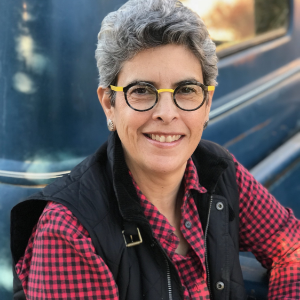 Moderator
ModeratorCarol Romero-Wirth is serving her first term as a Santa Fe City Councilor.
Carol’s New Mexico roots go back generations from Mora, New Mexico. She grew up in Colorado and graduated from Colorado College with a bachelor’s degree in Political Science. Carol holds a master’s degree in Public Policy from the Lyndon B. Johnson School of Public Affairs at the University of Texas in Austin. Her law degree is from the University of New Mexico. She was admitted to the New Mexico Bar in 1998.
Over the last thirty years Carol’s work has focused in public policy, government and politics. She served as a commissioner on the City Charter Review Commission, was the first associate director at Think New Mexico, and she has also worked as a public policy consultant on water, environment and sustainability projects. In addition, she worked for the New Mexico Legislature as a bill drafter and professional staff at the Legislative Council Service.
 20 May 2022 10:30 AM
20 May 2022 10:30 AM Panelist
PanelistReese Baker, owner and founder of The RainCatcher Inc., is a certified permaculture designer who has been involved with green building, organic farming, water harvesting, erosion control, ecological restoration and permaculture in the Santa Fe area for over 18 years. He currently owns The RainCatcher Inc. based out of Santa Fe, NM. He holds a B.S. in Biology/Botany from The University of New Mexico and is currently pursuing a Ph.D in Biology at The University of New Mexico with focus on the bioremediation of stormwater. He has also taught classes on water harvesting, permaculture, and erosion control at Ecoversity, Plants of the Southwest, Santa Fe Preparatory School, Quivira Coalition, Earthworks Institute, Arboretum Tome, Permaculture Institute, Santa Fe Botanical Gardens, and Santa Fe Community College.
 Moderator
ModeratorAmanda Hatherly is the Director for the Center of Excellence for Green Building and Energy Efficiency and New Mexico Energy$mart Academy at Santa Fe Community College. She teaches courses from the Building Performance Institute, the Residential Energy Services Network (RESNET) and the National Center for HealthyHousing and is the Principle Investigator for a National Science Foundation grant developing serious games related to building science. She also teaches a graduate course on Environmental Health for Boston Architecture College.
She has a graduate degree in Educational Technology focusing on adult online course design.
"International urban environments are a major contributor to the current water crisis. The same impermeable surfaces in cities designed to efficiently move stormwater away from high traffic areas are the same surfaces that prevent groundwater from recharging and moving various pollutants, e.g. petroleum products, microplastics, pesticides/herbicides, heavy metals, E. coli, etc., downstream and away from populated areas. However, Rain Gardens allow for the capture of stormwater and pollutants to infiltrate the ground downstream and seep through plants, soil microbes, and soil fungi. This session will discuss current projects within the City of Santa Fe, concepts of bioremediation, and a tour of different Rain Garden sites at this year's NGWS 2022."
Veronica Blette manages the WaterSense program in the U.S. Environmental Protection Agency’s (EPA) Office of Water.
Prior to Ms. Blette’s current position, she served as special assistant to the director of the National Drinking Water Program and led the EPA’s Drinking Water Infrastructure Financing Program.
Before joining the EPA in 1997, Ms. Blette worked in the academic research and environmental consulting fields on projects investigating the effects of atmospheric deposition on soils and water quality. She has a Bachelor of Arts in geology from Smith College and a Master of Science in geology from the University of Massachusetts at Amherst.
Christine Y. Chavez has a background in water rights administration and energy & water conservation program management in the state of New Mexico. Christine is the Water Conservation Manager for the City of Santa Fe and is a certified Energy Auditor with the Building Performance Institute, Certified Landscape Irrigation Auditor with the Irrigation Association and Qualified Water Efficient Landscaper through EPA WaterSense.
She is a graduate of New Mexico State University (B.S. in Environmental Science and M.S. in Biology).
 20 May 2022 10:30 AM
20 May 2022 10:30 AMNew, single-family dwellings in the southwest is increasing pressure on existing water supplies. Even though these properties have the security of a centralized water system, they can be designed and built to use little to no potable water in areas currently prone to drought. This session will review the strategies taken to get to a nearly net-zero water home. It's all in the details.
 Panelist
PanelistArthine is a globally respected leader known for her collaborative approaches at the nexus of water, finance, technology, innovation, and resilient ecosystems. In 2015, she launched WaterFunder, a water infrastructure project finance advisory firm, after mentoring water technology firms. Arthine has global management experience in the public, private, government, academic, start-up, and non-profit industry sectors. She has crafted and implemented growth and expansion strategies for development banks, foreign direct investment agencies, water utilities, capital markets firms, and Silicon Valley tech giants. Arthine is an Army veteran and a Russian linguist, having held roles in data management, military intelligence and civil affairs. Arthine is an angel investor and start-up advisor who invests her resources in prescient business models and solutions to help an ever-changing world. She has an Economics BA from UC Davis and an MBA from IMD in Switzerland.
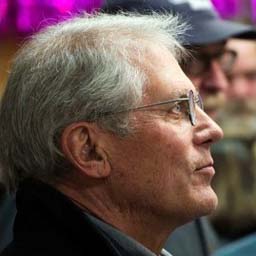 Panelist
PanelistSteve is the Founder of EverGreen Building Solutions, LLC, which provides green building services including building science consulting, Home Energy Rating System analysis, Santa Fe green code compliance, Sustainable Building Tax Credit application assistance and LEED compliance assistance. Steve is a RESNET/HERS and Green Rater, LEED Green Rater, Passive House Institute PHIUS+Rater, National Green Building Standard Green Verifier, Water Efficiency Rating Score (WERS) Verifier, EPA WaterSense Inspector, Energy Star Partner and DOE Zero Energy Ready Home Partner. Steve has a Bachelor of Science in Business with a minor in Engineering, Magna cum Laude, from the University of Colorado and a Masters of Business Administration from New York University.
Will is an internationally recognized thought leader on water strategy and innovation. He has been a sustainability and water strategy advisor to multinationals, water technology companies and NGOs for his entire career. Will works with multinationals on corporate water strategies, water technology innovation and water market entry strategies. His work with water technology companies is as a strategy advisor and investor.
He is currently working on: "DIGITAL WATER: New Technologies for a More Resilient, Secure and Equitable Water Future."
Doug is a lifetime American Rainwater Catchment System Association (ARCSA) member, an Accredited Professional and an ex-Board member of ARCSA. He is a prolific writer and his articles have appeared in The New York Times, Water Efficiency Magazine, Home Power, Taos News and Water News, among others. He also has a regular monthly column in the Santa Fe New Mexican. He is co-author of two water studies that have been widely published: “Rainwater Harvesting Industry Market Size and Trends” and “First-Ever Long-Term Water Conservation Rebate Study”.
Doug is an EPA WaterSense Partner with Certification in Irrigation Auditing. He is an active member of the City of Santa Fe Water Conservation Committee. He is currently a member of the International Code Committee (ICC) working group that is drafting the ICC Rainwater Harvesting Building Codes. Doug is also a certified Permaculture Designer. Doug designs and consults on rainwater and water reuse systems locally and around the country.
 20 May 2022 11:30 AM
20 May 2022 11:30 AM Panelist
Panelist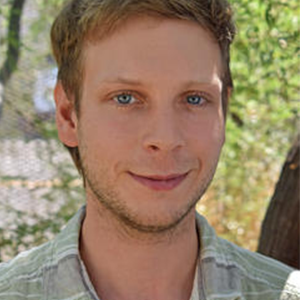 Moderator
ModeratorLaura Allen is the co-founder of Greywater Action, where she educates about sustainable water solutions through trainings and online classes. She authored Greywater, Green Landscape and The Water-Wise Home: How to Capture, Conserve, and Reuse Water in Your Home and Landscape. Laura is a technical advisory committee member for the International Association of Mechanical and Plumbing Officials’ (IAPMO) Water Efficiency Standard (WE-Stand), and is also a board member of the California Onsite Water Association (COWA).
Doug is a lifetime American Rainwater Catchment System Association (ARCSA) member, an Accredited Professional and an ex-Board member of ARCSA. He is a prolific writer and his articles have appeared in The New York Times, Water Efficiency Magazine, Home Power, Taos News and Water News, among others. He also has a regular monthly column in the Santa Fe New Mexican. He is co-author of two water studies that have been widely published: “Rainwater Harvesting Industry Market Size and Trends” and “First-Ever Long-Term Water Conservation Rebate Study”. Doug is also a Co-Chair of the Next Generation Water Summit.–present.
Deirdre Irwin is the Water Conservation Coordinator for the St. Johns River Water Management District. With over 29 years of experience at the District, she has worked with the agency’s surface water regulatory program, water resource education program, certification program development and water supply planning. Her work as the Florida Water StarSM Coordinator and Water Conservation Coordinator involves administering the Florida Water Star program and assisting with training and outreach for the program. Deirdre works closely with District staff in the development of regional water supply plans and coordinates a utility water conservation group that meets quarterly.
Deirdre serves on the board for the Florida Green Building Coalition and on the statewide Florida-Friendly Landscaping Advisory Committee. Deirdre serves as chair of the Water Use
Efficiency Division for the Florida Section of the AWWA.
 20 May 2022 11:30 AM
20 May 2022 11:30 AM Speaker
SpeakerLindsay Rogers is a Water Policy Analyst for Western Resource Advocates, where she develops and advocates for sustainable water management policies and programs at the state and local levels, and provides technical expertise to build climate resilient, equitable, and vibrant communities. Much of this work is focused on the intersection of water and land use planning with the goal of supporting communities to grow as water efficiently as possible. Previously, she was the Colorado Basin Program Manager at WaterNow Alliance, working directly with municipal water decision-makers to advance sustainable water policies. Lindsay serves on the Board of Colorado WaterWise and as the organization's Educational Events Chair, on the City of Edgewater’s Sustainability Board as the Land & Water Chair, and is a member of the Colorado Water & Land Use Planning Alliance. She is a 2021 graduate of Water Education Colorado’s Water Leaders Program and is certified as a Qualified Water Efficiency Landscaper.
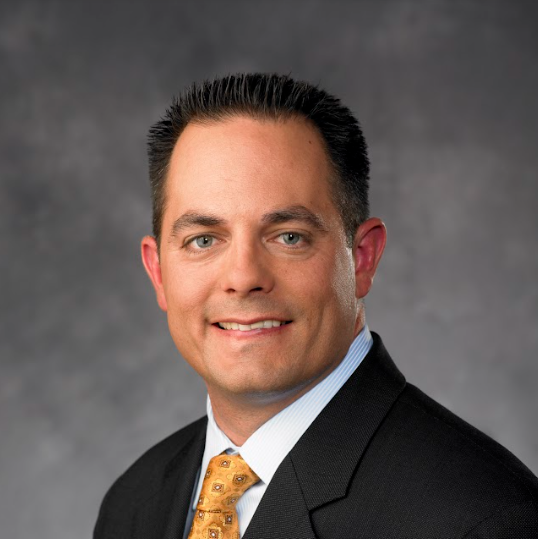 Panelist
PanelistZane Marshall is the Director of the Water Resources Department of the Southern Nevada Water Authority (SNWA), where he has worked for the past 26 years. A Las Vegas native, Zane leads six divisions that oversee the management of water, land and environmental resources, and the implementation of environmental restoration and compliance, conservation, climate change and sustainability programs.
Zane has a Bachelor of Arts in Environmental Studies, and a Master of Arts in Science in Biology and Statistics from the University of Nevada, Las Vegas. He is also a 2014 graduate of the Kenan-Flagler Business School’s Water and Waste Water Leadership Center.
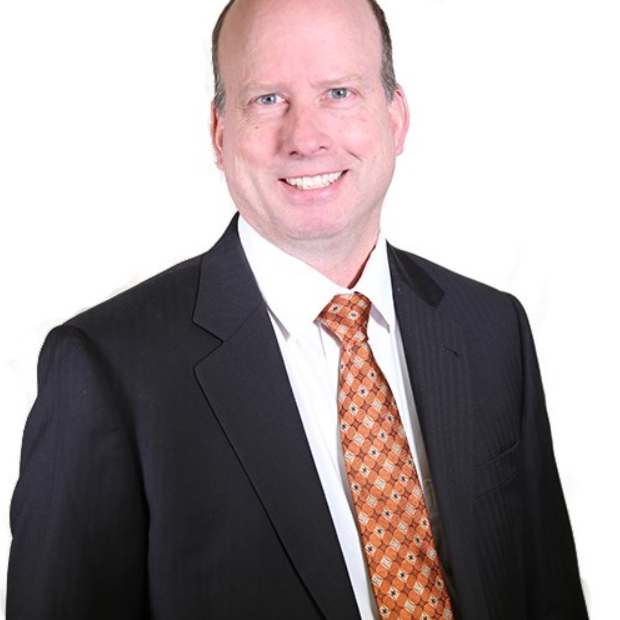 Panelist
PanelistMark Stratford serves as General Counsel for the Jordan Valley Water Conservancy District. Prior to working for Jordan Valley, he was Deputy City Attorney for Ogden City, Utah. He worked for Ogden from 2007 to 2021 where he provided legal review for a broad range of land use issues, participated in the Utah Land Use Task Force and advised both the city planning department and the Ogden City Planning Commission. Before working for Ogden City, Mark was an assistant attorney general representing the Utah State Engineer in water rights general adjudication cases throughout the state.
Mark has been a member of the Utah Water Task Force since 2009 and represents the Utah League of Cities and Towns on the Utah Watersheds Council. He was a member of the State Water Plan Advisory Committee, which assisted the Utah Division of Water Resources with the preparation of the 2021 Water Resources Plan. Mark was also a member of the HCR10 workgroup, which provided a range of suggestions on how to stabilize water levels in Great Salt Lake and served on the Governor’s Water Strategy Advisory Team in 2017.
Mark graduated from Brigham Young University where he received his bachelor’s degree in History. He received his Juris Doctor degree from the University of Utah S.J. Quinney School of Law in 1995.
Laureen holds Bachelor's and Master's degrees in architecture from the University of Illinois and is a licensed architect in Illinois & Wisconsin as well as having received approval for reciprocal licensure across the country via NCARB certification. She has also built a successful 30-year+ practice in the design and construction of commercial buildings, multi-family projects, single family homes, and interiors. Additional experience includes ratings, inspections, and certification application processing for a variety of commercial & residential properties through LEED BD+C, LEED ID+C, LEED for Homes & LEED for Homes Mid-Rise, Energy Star Homes & Energy Star Multifamily High Rise, Enterprise Green Communities, and the WERS (Water Efficiency Rating Score).
Other accreditations & certifications include USGBC LEED® for Homes QAD, RESnet/HERS Energy Rater, LEED for Homes Green Rater, LEED AP BD+C, LEED AP HOMES, USGBC LEED® Faculty™, and WERS Faculty & Verifier.
"This session will hone in on innovative approaches being implemented at the state and local levels in Colorado, Utah, and Nevada, in order to transform acres of non-essential turf into verdant and thriving water wise landscaping. Non-essential turf, or non-functional turf, is high water use turfgrass where the only person walking on it, is the person maintaining it. Today, turfgrass is the number one irrigated “crop” in the United States. Moreover, in the West, outdoor water use that mostly irrigates turf,accounts for approximately half of all municipal water use. Large-scale turf replacement and limitations on new, non-essential turf present two of the largest municipal water conservation opportunities in the West. In recent years, Western states have begun to take unprecedented action to remove and limit turf in their communities. In this session, we’ll learn about Southern Nevada Water Authority’s long-standing and successful Water Smart Landscape Rebate to encourage turf replacement, along with an even more ambitious law enacted by the Nevada legislature in 2021 to prohibit the use of Colorado River water delivered by SNWA member agencies to irrigate nonfunctional grass. We’ll further discuss the still undecided outcome of Utah’s 2022 legislative session which included several key bills to expand outdoor water conservation. If passed, we could see the development of greater water conservation efforts in Utah’s fast-growing cities, including funding for a statewide turf replacement program, limits on nonessential turf installed on state properties, and requirements to better integrate water and land use. We’ll also learn about Colorado’s recent legislative and local efforts to expand turf replacement programs and what this could mean for Colorado’s water future."
 20 May 2022 01:15 PM
20 May 2022 01:15 PM Panelist
Panelist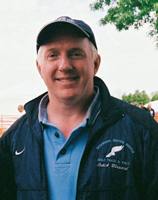 Panelist
PanelistLaureen holds Bachelor's and Master's degrees in architecture from the University of Illinois and is a licensed architect in Illinois & Wisconsin as well as having received approval for reciprocal licensure across the country via NCARB certification. She has also built a successful 30-year+ practice in the design and construction of commercial buildings, multi-family projects, single family homes, and interiors. Additional experience includes ratings, inspections, and certification application processing for a variety of commercial & residential properties through LEED BD+C, LEED ID+C, LEED for Homes & LEED for Homes Mid-Rise, Energy Star Homes & Energy Star Multifamily High Rise, Enterprise Green Communities, and the WERS (Water Efficiency Rating Score). Other accreditations & certifications include USGBC LEED® for Homes QAD, RESnet/HERS Energy Rater, LEED for Homes Green Rater, LEED AP BD+C, LEED AP HOMES, USGBC LEED® Faculty™, and WERS Faculty & Verifier.
Mr. Blissard holds a Bachelor's degree from Arkansas State University and has built a long, successful career in the education industry. While an educator, he completed renovations and provided part-time construction services over a period of 15 years. In 2010, his focus shifted to the construction industry full-time and included training with accreditation in multiple green building certification programs. As a BPI Building Analyst, RESNET Field Inspector and WERS Candidate, many of his projects have focused on multi-family certifications which includes water systems inspections and testing.
 20 May 2022 01:15 PM
20 May 2022 01:15 PM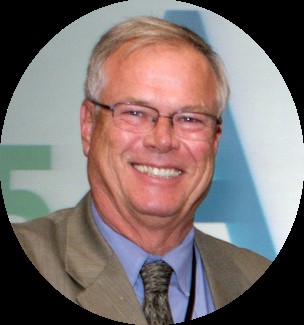 Panelist
PanelistGlenn Schiffbauer, Executive
 20 May 2022 02:15 PM
20 May 2022 02:15 PM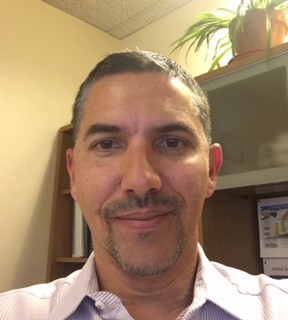 Panelist
Panelist Moderator
ModeratorDoug is a lifetime American Rainwater Catchment System Association (ARCSA) member, an Accredited Professional and an ex-Board member of ARCSA. He is a prolific writer and his articles have appeared in The New York Times, Water Efficiency Magazine, Home Power, Taos News and Water News, among others. He also has a regular monthly column in the Santa Fe New Mexican. He is co-author of two water studies that have been widely published: “Rainwater Harvesting Industry Market Size and Trends” and “First-Ever Long-Term Water Conservation Rebate Study”. Doug is also a Co-Chair of the Next Generation Water Summit.
This session will highlight the La Paloma Apartment project. Property managers worked with the local water utility, its contractor, and a local landscaping company to replace apartment plumbing fixtures and upgrade the complex’s irrigation system. The property saved more than 5 million gallons of water within the first year, and the project paid for itself within two years, thanks in part to the utility’s rebate program.
Carlos A. Bustos, is the Water Conservation Program Manager for the Albuquerque Bernalillo County Water Utility Authority, with over 15 years of experience in the water resource field. Carlos has a unique mix of experience in water resource management, water efficiency and landscape best management practices. He is certified for public water system water level 2 operator and a qualified water efficient landscaper. His professional interests include efficient landscaping irrigation practices, unlocking the potential of personnel, system organization, building teams, and program implementation. Carlos holds degrees from the University of Puerto Rico in Economic Management and a Master’s Degree on Environmental Science focusing on urban planning and management of natural resources..
 20 May 2022 02:15 PM
20 May 2022 02:15 PM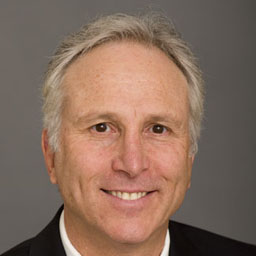 Panelist
Panelist"Commercial establishments represent an untapped sector for water savings. This panel will review massive water savings in restaurants, hotels, and retail office centers. The why, the how, and the what?"
Glenn Schiffbauer, Executive Director of the Santa Fe Chapter of the New Mexico Green Chamber of Commerce, is a native New Mexican. He received his BBA from New Mexico State University and his MBA from the Robert O. Anderson School of Management at the University of New Mexico. After 16 years in management at renowned Rancho Encantado, he started two small businesses in Santa Fe. He also worked with his wife Kim as a consultant for businesses statewide in both marketing and public affairs. In 2005, he became a liaison and project manager for Robert Redford in New Mexico working on a variety of projects from film to governmental to green construction. In October 2012, he became Executive Director for the newly founded Santa Fe Chapter of the New Mexico Green Chamber of Commerce. Glenn is also a Co-Chair of the Next Generation Water Summit.
 Panelist
Panelist"Matt is a licensed civil and structural engineer and is currently the Vice-President of Real Estate Development Operations at Thomas Properties in Santa Fe where he identifies, analyzes, and designs all real estate development opportunities of Thomas Properties and its subsidiaries. Matt has over 33 years of experience in real estate development, land use planning and engineering in Santa Fe and other parts of New Mexico. Prior to joining Thomas Properties, Matt worked in the public sector where he was the City of Santa Fe’s longest serving Land Use Director and where he also served as the city’s first Asset Development Director, establishing the city’s first office to oversee the city’s real estate assets. In his time at the city Matt also authored or co-authored over 35 pieces of land use-related legislation including the Midtown Local Innovation Corridor (Midtown LINC) District and the Airport Road Overlay District, and co-authored the NM Senate Bill 10, which revised the state’s Condominium Act. Matt formerly served as Chairman of the Santa Fe Planning Commission and on numerous other city land use committees. He currently serves as the building construction practices member of the city’s Water Conservation Committee and the vice-chair of the Capital Improvements Advisory Committee.Matt holds a B.S. degree from the University of Connecticut School of Engineering and a M.S. from Columbia University’s Graduate School of Architecture, Preservation & Planning."
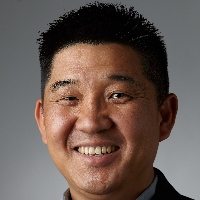 Panelist
PanelistRyan Kim is CEO of Phyn, the company bringing intelligent water solutions to market that help people protect their homes, conserve water and save money. Ryan brings over 20 years of technology leadership experience and engineering expertise to Phyn. Prior to Phyn, Ryan served as the vice president of engineering at Belkin, responsible for hardware, firmware, software, quality, and program management. During his tenure at Belkin, Ryan led the vision, architecture and development of the WeMo platform, one of the most recognized and widely adopted brands in the Smart Home category. Before joining Belkin, Ryan served as CTO of Intelliverse, an intelligent IVR platform and automated voice services company that provides services to Fortune 500 companies including Bank of America and AT&T. Ryan graduated from the University of California, Los Angeles with a degree in Computer Science and Electrical Engineering. He is also the author of dozens of patents in and around the IoT space.
 20 May 2022 03:15 PM
20 May 2022 03:15 PM Panelist
PanelistDoug is a lifetime American Rainwater Catchment System Association (ARCSA) member, an Accredited Professional and an ex-Board member of ARCSA. He is a prolific writer and his articles have appeared in The New York Times, Water Efficiency Magazine, Home Power, Taos News and Water News, among others. He also has a regular monthly column in the Santa Fe New Mexican. He is co-author of two water studies that have been widely published: “Rainwater Harvesting Industry Market Size and Trends” and “First-Ever Long-Term Water Conservation Rebate Study”. Doug is also a Co-Chair of the Next Generation Water Summit.
 Panelist
PanelistGlenn Schiffbauer, Executive Director of the Santa Fe Chapter of the New Mexico Green Chamber of Commerce, is a native New Mexican. He received his BBA from New Mexico State University and his MBA from the Robert O. Anderson School of Management at the University of New Mexico. After 16 years in management at renowned Rancho Encantado, he started two small businesses in Santa Fe. He also worked with his wife Kim as a consultant for businesses statewide in both marketing and public affairs. In 2005, he became a liaison and project manager for Robert Redford in New Mexico working on a variety of projects from film to governmental to green construction. In October 2012, he became Executive Director for the newly founded Santa Fe Chapter of the New Mexico Green Chamber of Commerce. Glenn is also a Co-Chair of the Next Generation Water Summit.
 Panelist
PanelistMike Collignon is the Executive Director of the Green Builder® Coalition, an organization he co-founded in 2010. He engages in national and state-level advocacy and publishes regular content for Green Builder® Media. Mike is also the Chair of the WERS Development Group and the Co-Chair of the Next Generation Water Summit. Finally, he has served as the voice of Green Builder® Media’s online and in-person events from 2012–present.
 20 May 2022 10:30 AM
20 May 2022 10:30 AMThis presentation and discussion will focus on 2022 water management legislation and an overview of forward-looking actions being taken to reform water governance structures, agencies, and mechanisms to secure our waters future.
"Water demand is growing in the city of Santa Fe as well as the County. These two areas are managed by two different water agencies. Historically this has meant differing water conservation programs and messaging in these residents. Meetings have been occurring over the last year to bring about some cooperation between these two entities.This session will review the progress to date as well as discuss possible future."
 Moderator
ModeratorGlenn Schiffbauer, Executive Director of the Santa Fe Chapter of the New Mexico Green Chamber of Commerce, is a native New Mexican. He received his BBA from New Mexico State University and his MBA from the Robert O. Anderson School of Management at the University of New Mexico. After 16 years in management at renowned Rancho Encantado, he started two small businesses in Santa Fe. He also worked with his wife Kim as a consultant for businesses statewide in both marketing and public affairs. In 2005, he became a liaison and project manager for Robert Redford in New Mexico working on a variety of projects from film to governmental to green construction. In October 2012, he became Executive Director for the newly founded Santa Fe Chapter of the New Mexico Green Chamber of Commerce. Glenn is also a Co-Chair of the Next Generation Water Summit.
 Panelist
PanelistTheresa is a native New Mexican born and raised in Santa Fe, and her farming, ranching and native family roots date to New Mexico Spanish and Pueblo settlements. She has over 25 years of dedicated experience working as a social entrepreneur, home builder and as a science advocate to improve and sustain the natural, cultural, and built environment for future generations. She has expertise in public policy at the local, state, and federal level at the intersection of air, water, climate, electricity, and resiliency. She is currently a Civic Engagement and Policy Manager at New Mexico First, a nonpartisan catalyst for positive change by conducting independent research, engaging New Mexicans in policy, and enabling action. She formally served as a climate and energy outreach consultant to the Union of Concerned Scientists. In her role she worked in partnership to use independent science, analysis, and effective advocacy to create practical solutions to make New Mexico resilient and sustainable. She holds a bachelor’s degree from the University of New Mexico and a masters of sustainability degree from Arizona State University with a concentration in water resources.
 20 May 2022 11:30 AM
20 May 2022 11:30 AMWater data is vital for effective water management, detecting changes and trends, as well as identifying and predicting potential shortages. As New Mexico is looking ahead to scarcer water resources and a more arid climate, water data is critical to the future of the state. Today, the 2019 Water Data Act is allowing New Mexico State agencies and collaborators to lead and advocate for more publicly accessible water data. In this session, you will learn about the challenges and triumphs our state has faced, in order to open up water data as we work toward 21st century water management.
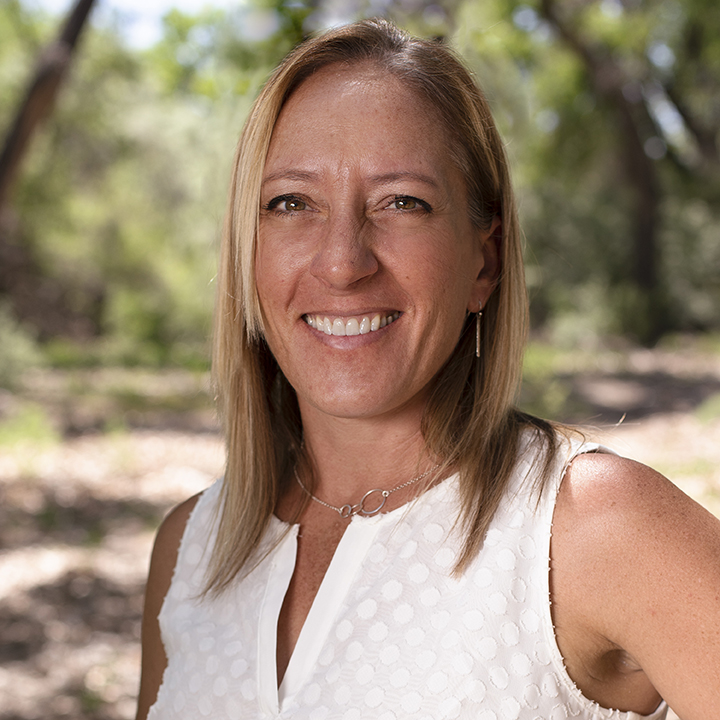 Panelist
Panelist 20 May 2022 01:15 PM
20 May 2022 01:15 PM"Water demand is growing in the city of Santa Fe as well as the County. These two areas are managed by two different water agencies. Historically this has meant differing water conservation programs and messaging in these residents. Meetings have been occurring over the last year to bring about some cooperation between these two entities.This session will review the progress to date as well as discuss possible future."
Carol Romero-Wirth is serving her first term as a Santa Fe City Councilor. Carol’s New Mexico roots go back generations from Mora, New Mexico. She grew up in Colorado and graduated from Colorado College with a bachelor’s degree in Political Science. Carol holds a master’s degree in Public Policy from the Lyndon B. Johnson School of Public Affairs at the University of Texas in Austin. Her law degree is from the University of New Mexico. She was admitted to the New Mexico Bar in 1998. Over the last thirty years Carol’s work has focused in public policy, government and politics. She served as a commissioner on the City Charter Review Commission, was the first associate director at Think New Mexico, and she has also worked as a public policy consultant on water, environment and sustainability projects. In addition, she worked for the New Mexico Legislature as a bill drafter and professional staff at the Legislative Council Service.
 Panelist
PanelistChristine Y. Chavez has a background in water rights administration and energy & water conservation program management in the state of New Mexico. Christine is the Water Conservation Manager for the City of Santa Fe and is a certified Energy Auditor with the Building Performance Institute, Certified Landscape Irrigation Auditor with the Irrigation Association and Qualified Water Efficient Landscaper through EPA WaterSense. She is a graduate of New Mexico State University (B.S. in Environmental Science and M.S. in Biology).
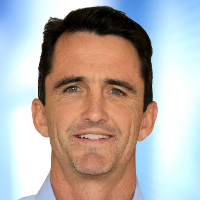 Jesse Roach (panelist) | Director, City of Santa Fe Water
Jesse Roach (panelist) | Director, City of Santa Fe WaterJesse Roach P.E. Ph.D. is Director of City of Santa Fe Water, a position he has held since July 2019. At City of Santa Fe Water, Jesse has led a strategic planning effort, led development of a long range water resources planning process, and provided leadership in support of new water resources development. Jesse’s technical areas of expertise include municipal operations and demand, potential climate change impacts on water resources, surface water – groundwater dynamics, and agricultural operations and demand. Jesse was the technical lead on an assessment of potential climate change impacts to water resources, and possible resulting changes to water operations in the Upper Rio Grande basin (http://www.usbr.gov/WaterSMART/wcra/reports/urgia.html), and a contributor to technical evaluation of water utility scale adaptation to potential hydrologic impacts of climate change in Santa Fe (https://www.usbr.gov/watersmart/bsp/docs/finalreport/SantaFe/Santa-Fe-Basin-Final.pdf). Jesse holds Bachelor and Master’s degrees in Civil and Environmental Engineering from Stanford, and a Ph.D. from the University of Arizona in Hydrology and Water Resources.
 20 May 2022 02:15 PM
20 May 2022 02:15 PMThe City of Santa Fe continues to grow as does our water conservation program. The City has one of the lowest gallons per capita use in the southwest. Our water aware citizens and our water conservation programs are responsible for this achievement. In this session, I will review our historic progress in water savings, our current conservation programs, as well as future programs. With our drought and growth, the need to become more water wise grows. Join me in this session to learn about our efforts and suggest new ones.
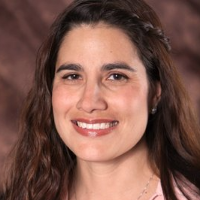 Panelist
Panelist 20 May 2022
20 May 2022This presentation and discussion will focus on 2022 water management legislation and an overview of forward-looking actions being taken to reform water governance structures, agencies, and mechanisms to secure our waters future.
 20 May 2022
20 May 2022 2021-06-02 00:00:00 MT
2021-06-02 00:00:00 MT Panelist
Panelist Moderator
ModeratorMike Collignon is the Executive Director of the Green Builder® Coalition, an organization he co-founded in 2010. He engages in national and state-level advocacy and publishes regular content for Green Builder® Media. Mike is also the Chair of the WERS Development Group and the Co-Chair of the Next Generation Water Summit. Finally, he has served as the voice of Green Builder® Media’s online and in-person events from 2012–present.
 2021-06-02 00:00:00 MT
2021-06-02 00:00:00 MT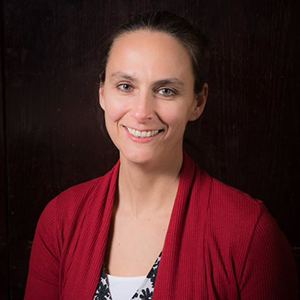 Panelist
PanelistHope Medina is an energy/green code consultant for Shums Coda Associates. She holds several International Code Council (ICC) certifications that she utilizes as a plan analyst, inspector, and instructor. The Colorado Chapter of ICC has a Code Development Committee for green codes and energy codes, and Hope is their Co-Chair. She has been involved with the development of the International Green Construction Code, and took the lead in the Green Code Collaboration Group which worked with stakeholders nationally on improving the 2015 International Green Construction Code (IgCC). Hope has served on the National Green Building Standard consensus committee for several cycles. She is a past co-chair of the water efficiency task group of the National Green Building Standard. Hope is past Vice Chair of ICC’s Sustainability Membership Council. She is a member of ICC’s Sustainability, Energy, and High-Performance Code Action Committee (SEHPCAC).
 Moderator
ModeratorMike Collignon is the Executive Director of the Green Builder® Coalition, an organization he co-founded in 2010. He engages in national and state-level advocacy and publishes regular content for Green Builder® Media. Mike is also the Chair of the WERS Development Group and the Co-Chair of the Next Generation Water Summit. Finally, he has served as the voice of Green Builder® Media’s online and in-person events from 2012–present.
 2021-06-02 00:00:00 MT
2021-06-02 00:00:00 MT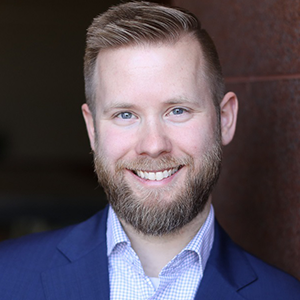 Panelist
Panelist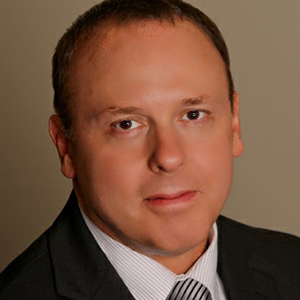 Panelist
Panelist Moderator
ModeratorChristoph Lohr is IAPMO’s Vice President of Strategic Initiatives. As part of his duties he provides industry leadership through participation in strategic industry initiatives, and provide technical support to all IAPMO’s business units as needed. He has over a decade of experience in designing plumbing systems for healthcare, laboratory, hospitality, sports, and university projects. He has spoken at numerous conferences and has written over 50 articles and blog posts on a variety of topics including water, energy, legionella, medical gas, strategy, and leadership. Christoph's professional activities in the industry extend into multiple volunteer positions, of which he has also assumed leadership roles setting strategy and direction for teams. He is a distinguished graduate from the Virginia Military Institute, with a Bachelor of Science in Mechanical Engineering.
Daniel Cole is Sr. Director of Technical Services at International Association of Plumbing and Mechanical Officials (IAPMO). He was a licensed Journeyman Plumber in the State of Illinois and is currently a member of the American Society of Plumbing Engineers (ASPE). He received the ASPE Scientific Achievement Award in 2018. He has published several articles on Hunter’s curve and the fixture unit methodology. His research focus is on the plumbing investigations performed at the National Bureau of Standards (now NIST) with a particular interest in the work of Roy B. Hunter. He also has a focus on promoting water efficiency standards for the built environment.
Mike Collignon is the Executive Director of the Green Builder® Coalition, an organization he co-founded in 2010. He engages in national and state-level advocacy and publishes regular content for Green Builder® Media. Mike is also the Chair of the WERS Development Group and the Co-Chair of the Next Generation Water Summit. Finally, he has served as the voice of Green Builder® Media’s online and in-person events from 2012–present.
Jesse Roach P.E. Ph.D. is Director of City of Santa Fe Water, a position he has held since July 2019. At City of Santa Fe Water, Jesse has led a strategic planning effort, led development of a long range water resources planning process, and provided leadership in support of new water resources development. Jesse’s technical areas of expertise include municipal operations and demand, potential climate change impacts on water resources, surface water – groundwater dynamics, and agricultural operations and demand. Jesse was the technical lead on an assessment of potential climate change impacts to water resources, and possible resulting changes to water operations in the Upper Rio Grande basin http://www.usbr.gov/WaterSMART/wcra/reports/urgia.html, and a contributor to technical evaluation of water utility scale adaptation to potential hydrologic impacts of climate change in Santa Fe https://www.usbr.gov/watersmart/bsp/docs/finalreport/SantaFe/Santa-Fe-Basin-Final.pdf.
Jesse holds Bachelor and Master’s degrees in Civil and Environmental Engineering from Stanford, and a Ph.D. from the University of Arizona in Hydrology and Water Resources.
 2021-06-02 00:00:00 MT
2021-06-02 00:00:00 MT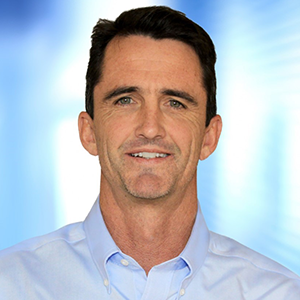 Speaker
Speaker 2021-06-02 00:00:00 MT
2021-06-02 00:00:00 MTThis session has become a bit of a tradition at the Summit, as Green Builder Coalition staff will recap the past year of WERS Program activities. They'll also give attendees a preview of the upcoming 12-18 months.
 Panelist
PanelistMelanie Stansbury is a Candidate for Congress and State Legislator, proudly representing New Mexico’s 28th District in the New Mexico State House of Representatives. Professionally Melanie works as a consultant and senior advisor to non-profit, philanthropic, and research organizations on strategies to help build a more sustainable world—with a focus on water security, natural resources, and community development. A sociologist by training, with a background in the natural sciences, Melanie has worked across the U.S. with federal, tribal, state, and local organizations, including as staff in the U.S. Senate Committee on Energy and Natural Resources and the Office of Management and Budget.
 Speaker
SpeakerCongresswoman Teresa Leger Fernández represents New Mexico’s 3rd Congressional District. In Washington, she holds a leadership role with the Congressional Hispanic Caucus as Freshman Representative. Congresswoman Leger Fernández serves as chair of the Subcommittee for Indigenous Peoples of the United States for the 117th Congress. She has also been appointed to the House Committee on Education and Labor, the House Committee on Natural Resources, and the Committee on House Administration.
She is a 17th generation Northern New Mexican. Before coming to Congress, Leger Fernández worked as an attorney and advocate, and won important legal battles to advance voting rights, promote tribal sovereignty, and protect our environment and acequia waters. She has helped secure nearly a billion dollars for, and then helped build, schools, rural health clinics, broadband, businesses, affordable housing and critical infrastructure for New Mexico.
 2021-06-02 00:00:00 MT
2021-06-02 00:00:00 MTWe will discuss how energy production's water use and how transitioning to renewable energy will help conserve more water.
 Panelist
PanelistAmanda Hatherly is the Director for the Center of Excellence for Green Building and Energy Efficiency and New Mexico Energy$mart Academy at Santa Fe Community College. She teaches courses from the Building Performance Institute, the Residential Energy Services Network (RESNET) and the National Center for HealthyHousing and is the Principle Investigator for a National Science Foundation grant developing serious games related to building science. She also teaches a graduate course on Environmental Health for Boston Architecture College. She has a graduate degree in Educational Technology focusing on adult online course design.
 Panelist
Panelist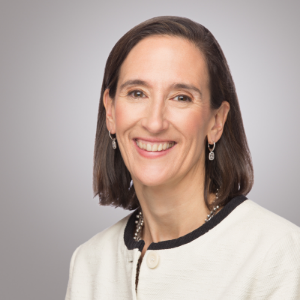 Panelist
PanelistLaney Brown is currently the Vice President of Sustainability at AVANGRID. In this role, she leads the ESG+F strategy and coordination supporting AVANGRID’s aspiration to be the leading energy company in the US. She has experience in both regulated and unregulated energy including, most recently, leading the start-up of a new retail renewable energy business as well as leading efforts to develop Future Utility strategy. Laney served on the US Department of Energy's Electricity Advisor Committee (EAC) for 5 years. Laney has a double MBA with a focus on the Global Energy Industry from the University of Strathclyde in Scotland and the Universidad Pontificas Comillas in Madrid, Spain.
 Panelist
PanelistAdam Cernea Clark is a senior manager in environment and natural resources at Pattern Energy. At Pattern, Adam’s work focuses on large-scale wind projects and high-voltage transmission lines and deals with complex permitting challenges relating to public lands, species permitting, state regulatory processes, and stakeholder relations. Adam also contributes to Pattern’s participation in environmental policy at the state and national level. Adam received a Bachelors in Arts in English from Kenyon College as well as a Juris Doctor from Northeastern University School of Law and a Masters in Environmental Law and Policy from Vermont Law School and is a non-practicing member of the New York Bar.
 2021-06-02 00:00:00 MT
2021-06-02 00:00:00 MT Speaker
SpeakerLaureen holds Bachelor's and Master's degrees in architecture from the University of
Illinois and is a licensed architect in Illinois & Wisconsin as well as having received approval for reciprocal licensure across the country via NCARB certification. She has also built a successful 30-year+ practice in the design and construction of commercial buildings, multi-family projects, single family homes, and interiors. Additional experience includes ratings, inspections, and certification application processing for a variety of commercial &
residential properties through LEED BD+C, LEED ID+C, LEED for Homes & LEED
for Homes Mid-Rise, Energy Star Homes & Energy Star Multifamily High Rise, Enterprise Green Communities, and the WERS (Water Efficiency Rating Score).
Other accreditations & certifications include USGBC LEED® for Homes QAD, RESnet/HERS Energy Rater, LEED for Homes Green Rater, LEED AP BD+C, LEED AP HOMES, USGBC LEED® Faculty™, and WERS Faculty & Verifier.
 2021-06-02 00:00:00 MT
2021-06-02 00:00:00 MT Co-Presenter
Co-PresenterDoug is a lifetime American Rainwater Catchment System Association (ARCSA) member, an Accredited Professional and an ex-Board member of ARCSA. He is a prolific writer and his articles have appeared in The New York Times, Water Efficiency Magazine, Home Power, Taos News and Water News, among others. He also has a regular monthly column in the Santa Fe New Mexican. He is co-author of two water studies that have been widely published: “Rainwater Harvesting Industry Market Size and Trends” and “First-Ever Long-Term Water Conservation Rebate Study”.
Doug is an EPA WaterSense Partner with Certification in Irrigation Auditing. He is an active member of the City of Santa Fe Water Conservation Committee. He is currently a member of the International Code Committee (ICC) working group that is drafting the ICC Rainwater Harvesting Building Codes. Doug is also a certified Permaculture Designer. Doug designs and consults on rainwater and water reuse systems locally and around the country.
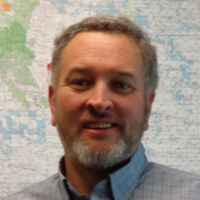 Co-Presenter
Co-PresenterMichael Broussard is the Environmental Health Bureau's Liquid Waste Specialist. For the past 8 years, he has been an Inspector for Santa Fe District II, Office of the NMED Environmental Health Bureau. He and three other liquid waste specialists within the state provide environmental health technical support for the liquid waste program. Michael currently serves as the past president of the New Mexico Environmental Health Association. The association is primarily responsible for providing training for environmental health professionals in the state.
Michael graduated from Lamar University in Beaumont Texas with a BS in Chemistry and minor in Bio-chemistry. He served in the US Army for ten years in the Nuclear-Biological and Chemical Officer’s Corp. Michael has worked for 20 years in the private sector for General-Mills, Georgia Pacific, Exxon-Mobil, and Johnson & Johnson, as well as owing a small business in the metal finishing industry and, currently, an indoor air quality company.
 2021-06-02 00:00:00 MT
2021-06-02 00:00:00 MT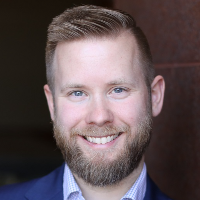 Panelist
PanelistChristoph Lohr is IAPMO’s Vice President of Strategic Initiatives. As part of his duties he provides industry leadership through participation in strategic industry initiatives, and provide technical support to all IAPMO’s business units as needed. He has over a decade of experience in designing plumbing systems for healthcare, laboratory, hospitality, sports, and university projects. He is a licensed professional engineer (PE) in six states, has his Certified-in-Plumbing-Design (CPD) certification from ASPE, is a LEED AP BD+C, and has his ASSE 12080 Legionella Mitigation Specialist designation. He has spoken at the ASPE 2018 Convention, Legionella 2018 and 2019 conferences, HITS Consortium, NIBS, and the ACEEE Hot Water Forum and has written over 50 articles and blog posts on the topics of water, legionella, medical gas, and leadership. Christoph's professional activities in the industry extend into multiple committees including ASPE Phoenix Chapter, ASPE Society, ASPE Legionella Working Group, ASHRAE Committees, PIPE Trust of Arizona, AWWA Plumbing Premise Committee, among others. He consistently looks to find long-term, holistic solutions that positively impact public health and safety, particularly in the world of water and plumbing. He is a distinguished graduate from the Virginia Military Institute, with a Bachelor of Science in Mechanical Engineering.
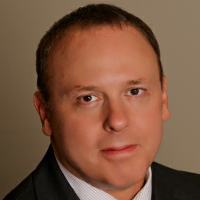 Panelist
PanelistDaniel Cole is Sr. Director of Technical Services at International Association of Plumbing and Mechanical Officials (IAPMO). He was a licensed Journeyman Plumber in the State of Illinois and is currently a member of the American Society of Plumbing Engineers (ASPE). He received the ASPE Scientific Achievement Award in 2018. He has published several articles on Hunter’s curve and the fixture unit methodology. His research focus is on the plumbing investigations performed at the National Bureau of Standards (now NIST) with a particular interest in the work of Roy B. Hunter. He also has a focus on promoting water efficiency standards for the built environment.
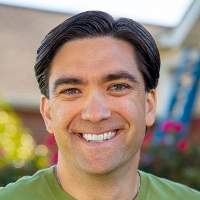 Moderator
ModeratorMike Collignon is the Executive Director of the Green Builder® Coalition, an organization he co-founded in 2010. He engages in national and state-level advocacy and publishes regular content for Green Builder® Media. Mike is also the Chair of the WERS Development Group and the Co-Chair of the Next Generation Water Summit. Finally, he has served as the voice of Green Builder® Media’s online and in-person events from 2012–present.
This on-demand session features a discussion on IAPMO's Water Demand Calculator. Join Christoph Lohr, Dan Cole and Mike Collignon as they delve into the the background of the WDC's development, market need and industry benefits.
 2021-06-02 00:00:00 MT
2021-06-02 00:00:00 MT 2021-06-02 00:00:01 MT
2021-06-02 00:00:01 MTRainMultifamily housing development continues to grow regardless of the direction of the economy. As it is a higher population density approach, it also has a higher impact on infrastructure. This session will focus on multiple multifamily case studies and the strategies implemented to reduce water use, as well as the projected impact of water use. Additionally, there will be a discussion on how the projects were verified and how the "projected" water use compares to the "actual" water use.
 Co-Presenter
Co-PresenterLaureen holds Bachelor's and Master's degrees in architecture from the University of
Illinois and is a licensed architect in Illinois & Wisconsin as well as having received approval for reciprocal licensure across the country via NCARB certification. She has also built a successful 30-year+ practice in the design and construction of commercial buildings, multi-family projects, single family homes, and interiors. Additional experience includes ratings, inspections, and certification application processing for a variety of commercial &
residential properties through LEED BD+C, LEED ID+C, LEED for Homes & LEED
for Homes Mid-Rise, Energy Star Homes & Energy Star Multifamily High Rise, Enterprise Green Communities, and the WERS (Water Efficiency Rating Score).
Other accreditations & certifications include USGBC LEED® for Homes QAD, RESnet/HERS Energy Rater, LEED for Homes Green Rater, LEED AP BD+C, LEED AP HOMES, USGBC LEED® Faculty™, and WERS Faculty & Verifier.
 Co-Presenter
Co-PresenterMr. Blissard holds a Bachelor's degree from Arkansas State University and has built a long, successful career in the education industry. While an educator, he completed renovations and provided part-time construction services over a period of 15 years.
In 2010, his focus shifted to the construction industry full-time and included training with accreditation in multiple green building certification programs. As a BPI Building Analyst, RESNET Field Inspector and WERS Candidate, many of his projects have focused on multi-family certifications which includes water systems inspections and testing.
 2021-06-02 00:00:00 MT
2021-06-02 00:00:00 MT 2021-06-02 00:00:00 MT
2021-06-02 00:00:00 MTRainwater catchment is becoming increasingly common. Regardless if it is an active system with tanks and pumps or a passive system using natural systems, it is a great source of alternative water that can and should be used. Leveraging this natural resource is better for the environment in many ways. This session will look at common installation and operational issues that can easily be avoided if planned for ahead of time.
 Speaker
Speaker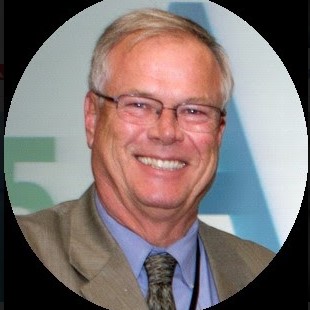 Panelist
PanelistReese Baker, owner and founder of The RainCatcher Inc., is a certified permaculture designer who has been involved with green building, organic farming, water harvesting, erosion control, ecological restoration and permaculture in the Santa Fe area for over 18 years. He currently owns The RainCatcher Inc. based out of Santa Fe, NM. He holds a B.S. in Biology/Botany from The University of New Mexico and is currently pursuing a Ph.D in Biology at The University of New Mexico with focus on the bioremediation of stormwater.
He has also taught classes on water harvesting, permaculture, and erosion control at Ecoversity, Plants of the Southwest, Santa Fe Preparatory School, Quivira Coalition, Earthworks Institute, Arboretum Tome, Permaculture Institute, Santa Fe Botanical Gardens, and Santa Fe Community College.
 2021-06-02 00:00:00 MT
2021-06-02 00:00:00 MT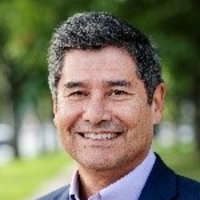 Panelist
PanelistFernando is the Managing Director for Hydraloop, Inc.
Mr. Ramirez is a social impact global business development professional with focus on water and energy issues. He has extensive international experience with next generation technologies designed to make a difference to global challenges.
Fernando is leading the North America expansion for CES 2020 Best of the Best winner, Hydraloop.
Graywater is a great alternative water source. Many homes produce 20-50 gallons a day; that is 600 - 1,500 gallons a month! It is a growth market throughout the West. This panel is going to focus on emerging technologies in the residential and commercial graywater market. Discover the types of systems that are coming to market that will make reusing graywater easier.
 Panelist
PanelistShawn is an ARCSA Accredited Professional and is a former member of the educational committee for the organization. Shawn is also a silent member of the NSF/ANSI 350 Standard for Water Reuse Treatment Systems.
After receiving his Bachelor of Science in Wood Science and Forest Products with emphasis on Marketing and Manufacturing and Masters of Forestry from Virginia Tech, he officially joined RMS in the fall of 2014 as National Accounts Manager.
Shawn installed his first rainwater harvesting system for potable use when he was 11. He has been involved with the alternate water reuse industry for 18 years and has a great understanding of its evolution into what it has become today.
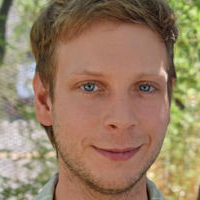 Moderator
ModeratorCharlie Alcorn is a Project Manager and Educator with Watershed Management Group where he leads installations for rainwater and greywater harvesting systems and teaches classes on rainwater harvesting principles. Charlie graduated with a degree in Physics from Dickinson College in Carlisle, Pennsylvania. He has worked in communications and as an educator at environmental nonprofits and in the wastewater and biosolids industry. In 2016, Charlie moved to Tucson, Arizona where he received a certificate for Water Policy from the University of
Arizona. He is a certified water harvesting design practitioner with Watershed Management Group.
Graywater is a great alternative water source. Many homes produce 20-50 gallons a day; that is 600 - 1,500 gallons a month! It is a growth market throughout the West. This panel is going to focus on emerging technologies in the residential and commercial graywater market. Discover the types of systems that are coming to market that will make reusing graywater easier.
 2021-06-02 00:00:00 MT
2021-06-02 00:00:00 MT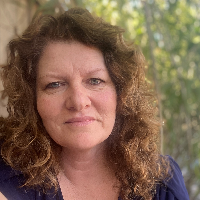 Speaker
SpeakerLearn a fast, easy and efficient way to collect dynamic water pressure (psi) while troubleshooting or performing drip audits or assessments. Locating the root of the problem in a drip system can be a tricky situation. If you are able to test psi, it can turn a chore into an easy task.
The Irrigation Association recommends collecting psi from three points within the drip system during a drip irrigation audit. The traditional way creates waste, is time-consuming and is not the most efficient method. With this DIY, easy-to-build drip psi testing tool, you can check your three psi areas within minutes and move on to the next zone without losing a drop of water.
Perhaps you are not performing a drip audit, but the system has issues that you need to figure out. With this tool, you place the rubber tip up against the orifice of the drip emitter or emitter tubing outlet, and you can move from emitter to emitter with great ease without wasting any water or poking a single hole. A psi reading is immediate and can help you quickly assess where issues are, without making a mess or wasting time.
If you are in California and performing a Model Water Efficient Landscape Ordinance (MWELO) audit, this method will save you time and get you to the next step faster.
Learning objectives:
 Moderator
ModeratorDoug is a lifetime American Rainwater Catchment System Association (ARCSA) member, an Accredited Professional and an ex-Board member of ARCSA. He is a prolific writer and his articles have appeared in The New York Times, Water Efficiency Magazine, Home Power, Taos News and Water News, among others. He also has a regular monthly column in the Santa Fe New Mexican. He is co-author of two water studies that have been widely published: “Rainwater Harvesting Industry Market Size and Trends” and “First-Ever Long-Term Water Conservation Rebate Study”.
Doug is an EPA WaterSense Partner with Certification in Irrigation Auditing. He is an active member of the City of Santa Fe Water Conservation Committee. He is currently a member of the International Code Committee (ICC) working group that is drafting the ICC Rainwater Harvesting Building Codes. Doug is also a certified Permaculture Designer. Doug designs and consults on rainwater and water reuse systems locally and around the country.
Kris Loomis' passion and curiosity of irrigation and figuring out how things work was the driving force for her to obtain Certificates in Irrigation Design (CID), Landscape Irrigation Auditing (CLIA) and Landscape Irrigation Auditing Drip Irrigation Specialty (CLIA-D) through the Irrigation Association. She is also Qualified Water Efficient Landscape (QWEL) certified and instructor.
She has over 20 years of experience working in the Landscape and Agricultural irrigation business on the supply and design side. On the supply side, she has the advantage of knowing what types of products there are to choose from. On the design side, she knows how to design a system to deliver the right amount of water at the right time.
Her primary job is working at a water wholesaler as a Senior Programs Specialist in Water Use Efficiency. This has its advantages as efficiency and avoiding water waste is also an important element in irrigation systems.
Kris is also an adjunct instructor, teaching Landscape Irrigation for 20 years and QWEL courses as well at Santa Rosa Junior College and Mendocino Community College.
Learn a fast, easy and efficient way to collect dynamic water pressure (psi) while troubleshooting or performing drip audits or assessments. Locating the root of the problem in a drip system can be a tricky situation. If you are able to test psi, it can turn a chore into an easy task.
The Irrigation Association recommends collecting psi from three points within the drip system during a drip irrigation audit. The traditional way creates waste, is time-consuming and is not the most efficient method. With this DIY, easy-to-build drip psi testing tool, you can check your three psi areas within minutes and move on to the next zone without losing a drop of water.
Perhaps you are not performing a drip audit, but the system has issues that you need to figure out. With this tool, you place the rubber tip up against the orifice of the drip emitter or emitter tubing outlet, and you can move from emitter to emitter with great ease without wasting any water or poking a single hole. A psi reading is immediate and can help you quickly assess where issues are, without making a mess or wasting time.
If you are in California and performing a Model Water Efficient Landscape Ordinance (MWELO) audit, this method will save you time and get you to the next step faster.
Learning objectives:
 2021-06-02 00:00:00 MT
2021-06-02 00:00:00 MTIn this session, Hope digs into the codes and where water has gained traction, and where it's still struggling to get a foot hold. There's also a discussion about codes vs. voluntary programs and the effectiveness of each.
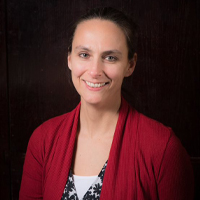 Speaker
SpeakerHope Medina is an energy/green code consultant for Colorado Code Consulting. She holds several International Code Council (ICC) certifications that she utilizes as a plan analyst, inspector, and instructor.
Hope is Co-Chair of the Colorado Chapter of ICC Code Development Committee for the green codes and standards. Hope has been involved with the development of the International Green Construction Code, and took the lead in the Green Code Collaboration Group which worked with stakeholders nationally on improving the 2015 International Green Construction Code (IgCC).
Ms. Medina has served on the National Green Building Standard consensus committee for several cycles. She currently co-chairs the water efficiency task group, and chairs the mixed-use task group of the National Green Building Standard.
Hope is the Co-Chair of ICC’s Sustainability Membership Council, and chairs the advocacy subcommittee. She is a member of ICC’s Sustainability, Energy, and High-Performance Code Action Committee (SEHPCAC).
 Moderator
ModeratorMike Collignon is the Executive Director of the Green Builder® Coalition, an organization he co-founded in 2010. He engages in national and state-level advocacy and publishes regular content for Green Builder® Media. Mike is also the Chair of the WERS Development Group and the Co-Chair of the Next Generation Water Summit. Finally, he has served as the voice of Green Builder® Media’s online and in-person events from 2012–present.
 2021-06-02 00:00:00 MT
2021-06-02 00:00:00 MT Panelist
PanelistMike Collignon is the Executive Director of the Green Builder® Coalition, an organization he co-founded in 2010. He engages in national and state-level advocacy and publishes regular content for Green Builder® Media. Mike is also the Chair of the WERS Development Group and the Co-Chair of the Next Generation Water Summit. Finally, he has served as the voice of Green Builder® Media’s online and in-person events from 2012–present.
Christoph Lohr is IAPMO’s Vice President of Strategic Initiatives. As part of his duties he provides industry leadership through participation in strategic industry initiatives, and provide technical support to all IAPMO’s business units as needed. He has over a decade of experience in designing plumbing systems for healthcare, laboratory, hospitality, sports, and university projects. He is a licensed professional engineer (PE) in six states, has his Certified-in-Plumbing-Design (CPD) certification from ASPE, is a LEED AP BD+C, and has his ASSE 12080 Legionella Mitigation Specialist designation. He has spoken at the ASPE 2018 Convention, Legionella 2018 and 2019 conferences, HITS Consortium, NIBS, and the ACEEE Hot Water Forum and has written over 50 articles and blog posts on the topics of water, legionella, medical gas, and leadership. Christoph's professional activities in the industry extend into multiple committees including ASPE Phoenix Chapter, ASPE Society, ASPE Legionella Working Group, ASHRAE Committees, PIPE Trust of Arizona, AWWA Plumbing Premise Committee, among others. He consistently looks to find long-term, holistic solutions that positively impact public health and safety, particularly in the world of water and plumbing. He is a distinguished graduate from the Virginia Military Institute, with a Bachelor of Science in Mechanical Engineering.
 2021-06-03 00:00:00 MT
2021-06-03 00:00:00 MTHealthy watersheds are critical to healthy water. In this session we will review an integrated, client partnership approach that views the whole watershed as one. Included in this approach are client agreements and dashboards of ongoing projects and programs with a stress on story-telling messaging.
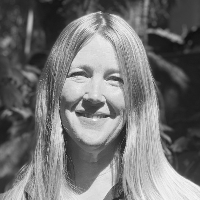 Speaker
SpeakerRegina Hirsch has nearly 20 years of experience monitoring and implementing watershed-based Best Management Practices solutions and assessing effectiveness cumulative of non-point source pollution treatments. After catching the watershed monitoring bug at the Central Coast Regional Water Quality Board and the Morro Bay National Estuary Program, she founded Sierra Watershed Progressive, a consulting/contracting firm which focuses on sharpening tools for LID Best Management Practices aimed at rehydrating watersheds and enhancing instream flows throughout California. In addition, Regina is an executive board member of the California Water Reuse Policy Council. Regina Hirsch’s goal is to focus on integrated, collaborative appropriate decision making when it comes to water, energy, plants, soils and most of all, community.
Thursday, June 15
5:30 to 7:00 pm MT
The reception will take place at the Inn at the Loretto (211 Old Santa Fe Trail in Santa Fe)
PNM and AVANGRID are committed to protecting our environment and that includes conserving our precious water. Join us for the PNM/AVANDRID Next Gen Water Summit Reception to meet the leadership of PNM and AVANGRID and learn more about our water conservation and reuse techniques and programs. There will be plenty of time for networking with your water-loving peers and community.
The reception will open with welcome comments from Glenn Schiffbauer, co-founder of the Next Generation Water Summit. He will be followed by Christine Chavez, Water Conservation Manager, City of Santa Fe, Ron Darnell, Senior VP of Public Policy, PNM and Laney Brown, VP of Sustainability, AVANGRID.
Refreshments and Cash Bar will be provided. This event is free and the general public is encouraged to attend.
 May 19, 2022 09:00
May 19, 2022 09:00As our planet gets warmer, precipitation patterns change, wind currents shift, and ocean temperatures rise. Climate change has profound implications for water supplies. This presentation explores the increasing impact on stream flows, lake and reservoir levels, hydropower production, and the availability of water for farms and cities.
Scientists predicted that climate change would occasion more extreme weather events. The last few years have produced extraordinarily powerful hurricanes, momentous storm surges, unprecedented flooding and historic forest fires. In the United States, these events caused loss of life and property, disabled critical infrastructure (including power plants), and displaced hundreds of thousands of people.
The Colorado River Basin is being particularly hard hit in the current drought. Rising heat and lower precipitation levels are leading to the lowest flow levels in decades. Each basin state is addressing, but in much different ways. Glennon calls for adapting to these changed conditions by building resilience into our water management institutions. He advocates borrowing principles of risk mitigation developed by hedge funds, insurance companies, and commodity markets to the world of water, as well as increasing conservation and water reuse at all levels and in all sectors.

Robert Glennon
Regents Professor Emeritus and Morris K. Udall Professor of Law & Public Policy Emeritus
 May 19, 2022 10:30
May 19, 2022 10:30Water and energy are indispensable in our lives and both heavily intertwined. As PNM continues on its path to 100% emissions-free energy by 2040, the shift to clean energy, strong emphasis on energy efficiency programs and optimization of water use are resulting in significant water savings. This talk will focus on PNM’s present state and “journey to zero” and how the company’s actions are helping to build a sustainable water future.

Maureen Gannon
Chief Environmental Officer at PNM
Maureen Gannon is Chief Environmental Officer for PNM, a vertically-integrated electric utility, headquartered in Albuquerque, New Mexico, that serves about 800,000 customers in New Mexico and Texas. She is responsible for developing and implementing PNM’s sustainable business strategy and the overall management of PNM’s environmental commitments. Maureen manages corporate environmental policy and implementation and environmental compliance of air, waste and water emissions at electric generation facilities and transmission/distribution facilities. She also oversees PNM’s Environmental Management System performance. Maureen serves as PNM’s
primary environmental contact with federal, regional, state, and local
agencies, as well as other utilities, business organizations and environmental
and other stakeholders and represents the company on environmental policy
boards and forums.
Maureen has 26 years of electric utility experience. She is currently PNM Resources’ representative on the Edison Electric Institute’s Environmental
Excellence Advisory Committee and serves on the Electric Power Research Institute’s Energy and Environment Executive Committee and Advisory Council. Maureen is also a board member of the ARCA Foundation. She holds an M.B.A. from the University of Phoenix and a B.S. in Chemical Engineering from New Mexico State University.

Michael Greene
Water Resources Manager at PNM
Mike is the Water Resources Manager for the Public Service Company of New Mexico, New Mexico’s largest electric utility. His focus is to ensure a sustainable supply of water for PNM’s generating facilities that require water for cooling. Mike is very proud that PNM uses 33% less fresh water to generate a megawatt hour of electricity today than it did in 2002.
Now in his 24th year with PNM, Mike has worked in Economic Development, Generation Asset Development and now in Water Resource Management. Prior to that he did a tour of duty with the U.S. Navy, graduated from New Mexico State University, and worked for IBM.

Glenn Schiffbauer (Moderator)
Executive Director
Glenn Schiffbauer, Executive Director of the Santa Fe Chapter of the New Mexico Green Chamber of Commerce, is a native New Mexican. He received his BBA from New Mexico State University and his MBA from the Robert O. Anderson School of Management at the University of New Mexico. After 16 years in management at renowned Rancho Encantado, he started two small businesses in Santa Fe. He also worked with his wife Kim as a consultant for businesses statewide in both marketing and public affairs. In 2005, he became a liaison and project manager for Robert Redford in New Mexico working on a variety of projects from film to governmental to green construction. In October 2012, he became Executive Director for the newly founded Santa Fe Chapter of the New Mexico Green Chamber of Commerce. Glenn is also a Co-Chair of the Next Generation Water Summit.
 May 19, 2022 10:30
May 19, 2022 10:30This 2-person panel will bring our audience up to speed on the newly announced outdoor watering restrictions in both southern California and the East Bay area, why they came into being, and what the short and medium-term outlook is for both locales.

Charles Bohlig (Panelist)
Supervisor, Water Conservation
Charles Bohlig has been with East Bay Municipal Utility District since 2004 where he currently is the Supervisor of Water Conservation. In this role, he creates and implements their incentive programs, administers their transformation into an informational services group, and directs their water budget program. He is also the District’s lead on implanting the State’s Long Term Framework water conservation plan. While at EBMUD, he has co-authored two, 10-year Water Conservation Master Plans, three Urban Water Management Plans, as well as forecasting water conservation’s savings in the 2050 District’s Demand Forecast. Before joining EBMUD, Charles was an Energy Analyst for Pacific Gas & Electric Company. He has over 25 years of experience in water and energy resource management and currently serves on the Board of California Water Efficiency Partnership (CalWEP).

Brad Coffey (Panelist)
Brad Coffey leads Water Resource Management at the Metropolitan Water District of Southern California. In this role, his team plans for the region’s water supply, manages imported and local water supply programs, advances conservation, and prepares for drought and a changing climate. Brad has more than 30 years of experience in improving the quality and reliability of the Southern California’s water supply.
 May 19, 2022 11:30
May 19, 2022 11:30
Glenn Schiffbauer (moderator)
Executive Director
Glenn Schiffbauer, Executive Director of the Santa Fe Chapter of the New Mexico Green Chamber of Commerce, is a native New Mexican. He received his BBA from New Mexico State University and his MBA from the Robert O. Anderson School of Management at the University of New Mexico. After 16 years in management at renowned Rancho Encantado, he started two small businesses in Santa Fe. He also worked with his wife Kim as a consultant for businesses statewide in both marketing and public affairs. In 2005, he became a liaison and project manager for Robert Redford in New Mexico working on a variety of projects from film to governmental to green construction. In October 2012, he became Executive Director for the newly founded Santa Fe Chapter of the New Mexico Green Chamber of Commerce. Glenn is also a Co-Chair of the Next Generation Water Summit.
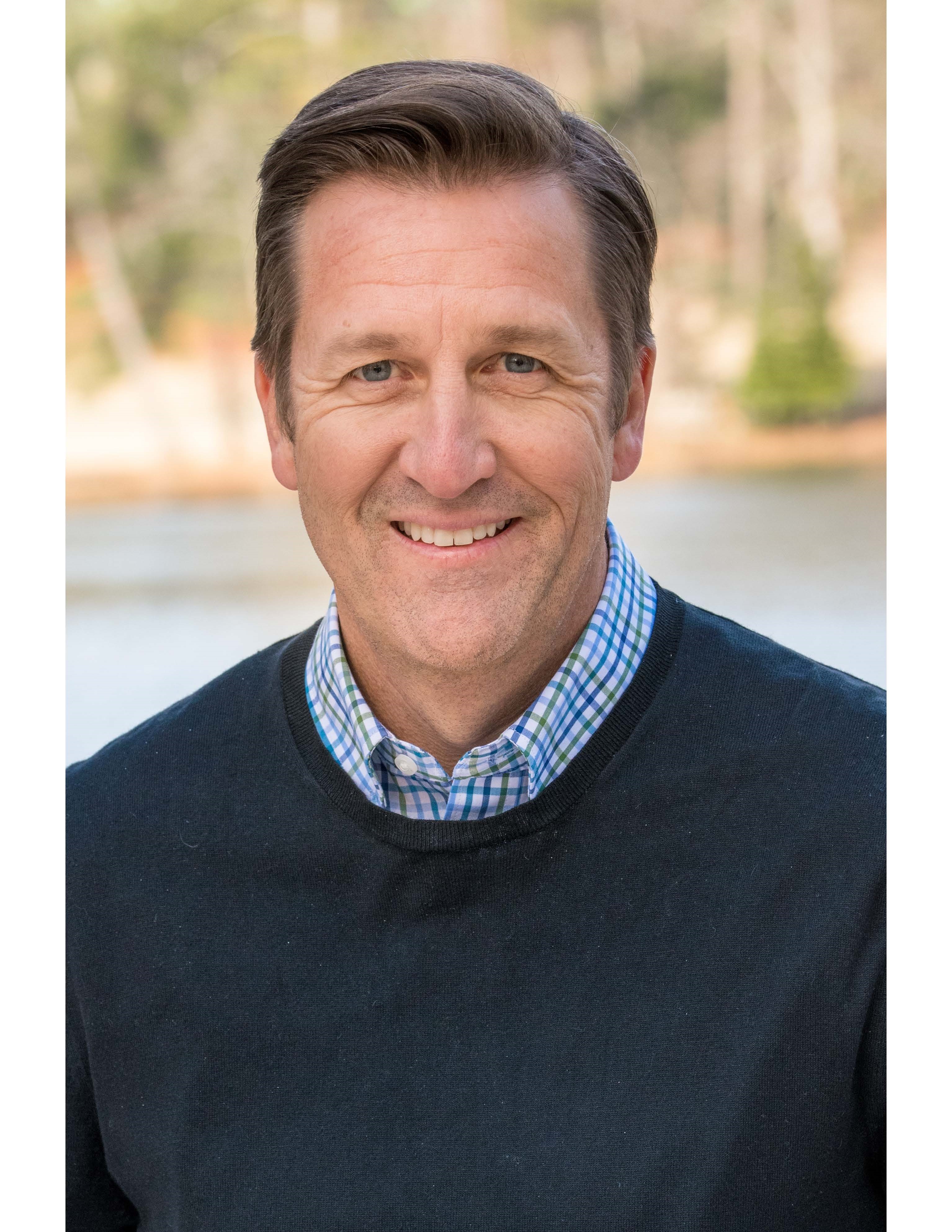
Alan Hook
Project Manager
Alan Hook is a Water Resources Coordinator within the Water Resources & Conservation section of City of Santa Fe Water. Alan previously received his Bachelor’s Degree in Environmental Studies from Warren Wilson College, NC. Alan has worked for the City of Santa Fe for fifteen years providing water resources planning, project management, hydrologic analysis, growth management, policy legislation and education & outreach. In addition, Alan is the project manager for the Santa Fe Municipal Watershed Program representing the City of Santa Fe in partnership with the U.S. Forest Service to protect the Santa Fe municipal watershed from wildfire impacts. Alan is directly involved with cannabis related businesses that are within the city limits to be compliant with the NM State code for recreational cannabis production, manufacturing or retail sales.

Ben Lewinger
Executive Director of the New Mexico Cannabis Chamber of Commerce
Ben Lewinger is a public affairs professional with a history of working on projects that have moved New Mexico forward. He is currently the executive director of the New Mexico Cannabis Chamber of Commerce, a membership organization representing producers, manufacturers, testing facilities, and cannabis-adjacent businesses across NM, dedicated to the responsible growth of the cannabis industry.
 May 19, 2022 11:30
May 19, 2022 11:30The West has been experiencing a long-term growth. COVID has accelerated that
migration of people to the West, driving an explosion of housing starts. This
session will explore that dynamic growth and its impact on water in a region
plagued with water supply concerns.

Brian Schmidt (panelist)
Senior Regional Economist for the West
Brian Schmidt has been with the Portland Cement Association (PCA) since 2011. He has a degree in political science and economics from Carthage College and an MBA from the Lake Forest Graduate School of Management.
Brian is responsible for forecasting and analysis of the Pacific and Mountain regions of the U.S. at PCA, as well as industry advocacy including energy & environmental issues.

Brian Richter (panelist)
President
Brian Richter has been a global leader in water science and conservation for more than 30 years. He is the president of Sustainable Waters, a global organization focused on water scarcity challenges, where he promotes sustainable water use and management with governments, corporations,
universities, and local communities. He previously served as Director of the Global Water Program of The Nature Conservancy, an international conservation
organization. Brian has consulted on more than 170 water projects worldwide. He
serves as a water advisor to some of the world’s largest corporations,
investment banks, and the United Nations, and has testified before the U.S. Congress on multiple occasions. He teaches Water Sustainability at the
University of Virginia.
Brian has developed scientific tools and methods to support river protection and restoration efforts, including the Indicators
of Hydrologic Alteration software used by water managers and
scientists worldwide.
He has published
many scientific papers on the importance of ecologically sustainable water management in international journals. He co-authored a book with Sandra Postel
entitled Rivers for Life: Managing Water for People and Nature. His
latest book, Chasing Water: A Guide for Moving from Scarcity to
Sustainability, has now been published in five languages.

Mike Collignon
Executive Director
Mike Collignon is the Executive Director of the Green Builder® Coalition, an organization he co-founded in 2010. He engages in national and state-level advocacy and publishes regular content for Green Builder® Media. Mike is also the Chair of the WERS Development Group and the Co-Chair of the Next Generation Water Summit. Finally, he has served as the voice of Green Builder® Media’s online and in-person events from 2012–present.
 May 19, 2022 13:15
May 19, 2022 13:15WaterSense Labeled Homes has been around for over a decade, but the new Version 2 represents a fundamentally new approach
for the program. The new version of the program offers more flexibility by focusing on water savings performance and includes other important changes in how the program is run. All this with the aim of expanding the reach of the program and increasing the water savings realized at the community level. This session will review these changes and present field data on water use in
WaterSense labeled homes in the Las Vegas, NV region where the new version of the program was piloted. Attendees will see the field results of actual water usage which clearly shows that when water efficiency is built in from the start, tremendous savings are possible!

Jonah Schein
National Program Manager for Homes & Buildings
Jonah Schein is the National Program Coordinator for Homes & Buildings at the U.S. Environmental Protection Agency’s (EPA) WaterSense® Program. He has overseen the technical development and implementation of the WaterSense Homes specification and certification system since their inception. He is also responsible for efforts to expand the WaterSense program’s reach in the multi-family and commercial sectors through analytics, modeling, and benchmarking.
Prior to joining EPA in 2008, Mr. Schein served as the Director of Outreach for Earth Day Network (EDN) where he was responsible for a number of initiatives to promote water efficiency through green building strategies in the United States and Middle East. Mr. Schein holds Bachelor of Arts and Bachelor of Science degrees from Indiana University as well as a Master of Science in Environmental Science from the Johns Hopkins University.
 May 19, 2022 13:15
May 19, 2022 13:15Human factors may not feature prominently in the parameters that drive efficient water use in urban landscapes. However, human factors may drive the biggest gains in the efficiency of water use in water limited landscapes. In this presentation, we will unpack our research on how these human factors impact efficient water use. For example, our research has consistently shown that the potential for water shortage is the most important factor that will drive humans to reduce water use.
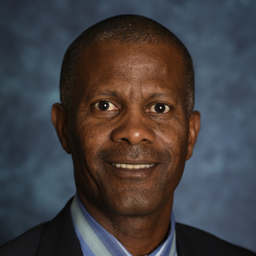
Rolston St. Hilaire
Professor & Department Chair
Rolston St. Hilaire is a professor and department head in the Department of Plant and Environmental Sciences at New Mexico State University. He teaches courses in landscape horticulture and environmental stress physiology. He holds a Ph.D. from Iowa State University. Dr. St. Hilaire’s research focuses on plant stress physiology, the development of tools that promote efficient water use in residential landscapes, and mapping and categorizing land cover in urban ecosystems. He is the author of the book “Landscape Plants for the Lower Rio Grande Valley” and has published over 126 papers in scientific journals and in the popular press. He has won awards for both his teaching and research and is the originator of the Mesa Glow™ bigtooth maple tree.
 May 19, 2022 14:15
May 19, 2022 14:15Patti Aaron will provide information on the current state of hydrology in the Colorado River Basin, which is entering its 23rd year of drought. She will also discuss collaborative actions being taken to mitigate the effects of the drought.

Patti Aaron
Public Affairs Officer
Patti Aaron is the Bureau of Reclamation’s Public Affairs Officer for its Lower Colorado Basin Region, which encompasses Southern Nevada, Southern California, and Arizona. She works with the media; stakeholders; federal, state, and local agencies; tribes; non-governmental groups; and other citizen organizations. Aaron has been with Reclamation for 20 years. She spent the first several years of her career working as a restoration biologist in Arizona, California, and Nevada. She then transitioned to working on Western water policy and public affairs programs in Washington, DC, for 10 years. She returned to the region in her current capacity in 2018. She holds a Bachelor of Science in Environmental Studies with an emphasis in Communications from the University of Nevada – Las Vegas.
 May 20, 2022 14:15
May 20, 2022 14:15Commercial establishments represent an untapped sector for water savings. This panel will
review massive water savings in restaurants, hotels, and retail office centers.
The why, the how, and the what?

Glenn Schiffbauer
Executive Director
Glenn Schiffbauer, Executive Director of the Santa Fe Chapter of the New Mexico Green Chamber of Commerce, is a native New Mexican. He received his BBA from New Mexico State University and his MBA from the Robert O. Anderson School of Management at the University of New Mexico. After 16 years in management at renowned Rancho Encantado, he started two small businesses in Santa Fe. He also worked with his wife Kim as a consultant for businesses statewide in both marketing and public affairs. In 2005, he became a liaison and project manager for Robert Redford in New Mexico working on a variety of projects from film to governmental to green construction. In October 2012, he became Executive Director for the newly founded Santa Fe Chapter of the New Mexico Green Chamber of Commerce. Glenn is also a Co-Chair of the Next Generation Water Summit.

Matthew O'Reilly (panelist)
VP, Real Estate Development Operations
Matt is a licensed civil and structural engineer and is currently the Vice-President of Real Estate Development Operations at Thomas Properties in Santa Fe where he identifies, analyzes, and designs all real estate development opportunities of Thomas Properties and its subsidiaries. Matt has over 33 years of experience in real estate development, land use planning and engineering in Santa Fe and other parts of New Mexico. Prior to joining Thomas Properties, Matt worked in the public sector where he was the City of Santa Fe’s longest serving Land Use Director and where he also served as the city’s first Asset Development Director, establishing the city’s first office to oversee the city’s real estate assets. In his time at the city Matt also authored or co-authored over 35 pieces of land use-related legislation including the Midtown Local Innovation Corridor (Midtown LINC) District and the Airport Road Overlay District, and co-authored the NM Senate Bill 10, which revised the state’s Condominium Act. Matt formerly served as Chairman of the Santa Fe Planning Commission and on numerous other city land use committees. He currently serves as the building construction practices member of the city’s Water Conservation Committee and the vice-chair of the Capital Improvements Advisory Committee.
Matt holds a B.S. degree from the University of Connecticut School of Engineering and a M.S. from Columbia University’s Graduate School of Architecture, Preservation & Planning.

Ryan Kim
CEO
Ryan Kim is CEO of Phyn, the company bringing intelligent water solutions to market that help people protect their homes, conserve water and save money. Ryan brings over 20 years of technology leadership experience and engineering expertise to Phyn. Prior to Phyn, Ryan served as the vice president of engineering at Belkin, responsible for hardware, firmware, software, quality, and program management. During his tenure at Belkin, Ryan led the vision, architecture and development of the WeMo platform, one of the most recognized and widely adopted brands in the Smart Home category. Before joining Belkin, Ryan served as CTO of Intelliverse, an intelligent IVR platform and automated voice services company that provides services to Fortune 500 companies including Bank of America and AT&T. Ryan graduated from the University of California, Los Angeles with a degree in Computer Science and Electrical Engineering. He is also the author of dozens of patents in and around the IoT space.
 May 19, 2022 14:15
May 19, 2022 14:15New water savings technology will be part of our future. The technology thus far has enabled us to grow in many communities over
the last decade without increasing water supplies. This panel will introduce two new technologies that may fit into our water conservation strategies.
Sebastian Metcalf (Panelist)
Mechanical Engineer
Sebastian is a mechanical engineer and owner at Everydrop Technologies, a small start-up focused on water conservation and affordable metering through the use of vortex technology. Graduating with his masters in mechanical engineering in 2018, he has a track record of developing quality products for the tech industry over the past 4 years. It is his belief that water saving products are
critical to the sustaining of communities across the West and Midwest as droughts continue to affect the nation. With this belief, Everydrop Technologies has a product that is reliable, accurate, and uniquely accessible to people interested in saving their water and making better decisions about how much they consume on a day-to-day basis.

Jan Gould (panelist)
Owner & CEO
Janice Gould has spent the past fifteen years
dedicating her time and passion to irrigation. She has become a strong advocate for water conservation and improving water management and sustainability to
preserve the environment and create a livable planet. Her main focus has been in developing and distributing a disruptive irrigation technology through her company, Responsive Drip Irrigation, LLC (RDI). RDI is a US- based company that has its main office in Bradenton, Florida and is currently working on projects in California
and other water-stressed states in the western United States. Working with the Abu Dhabi Investment Office, Jan has also established a manufacturing and distribution facility in the Khalifa Industrial Zone Abu Dhabi.
Currently, she is collaborating with the Abu Dhabi Agricultural & Food Safety Authority, along with AgTech companies that offer innovative solutions to
launch RDI’s Global Sustainability Center in Abu Dhabi, which is focused on the research and development for best practices in agriculture.
 May 19, 2022 15:15
May 19, 2022 15:15We'll hear about current water conservation efforts at the federal, regional and local levels. We'll also examine key takeaways from Day 1 of the Summit, and our experts will let us know what more can be done at all three levels.

Robert Glennon (panelist)
Regents Professor Emeritus and Morris K. Udall Professor of Law & Public Policy Emeritus
Robert Glennon is a Regents Professor and Morris K. Udall Professor of Law and Public Policy in the James E. Rogers College of Law at the University of Arizona. He received a J.D. from Boston College Law School and an M.A. and Ph.D. in American History from Brandeis University. He is a member of the bars of Arizona and Massachusetts. The recipient of two National Science Foundation grants, Glennon serves as an advisor to governments, corporations, think tanks, law firms, and NGOs looking to solve serious challenges around water sustainability and planning.
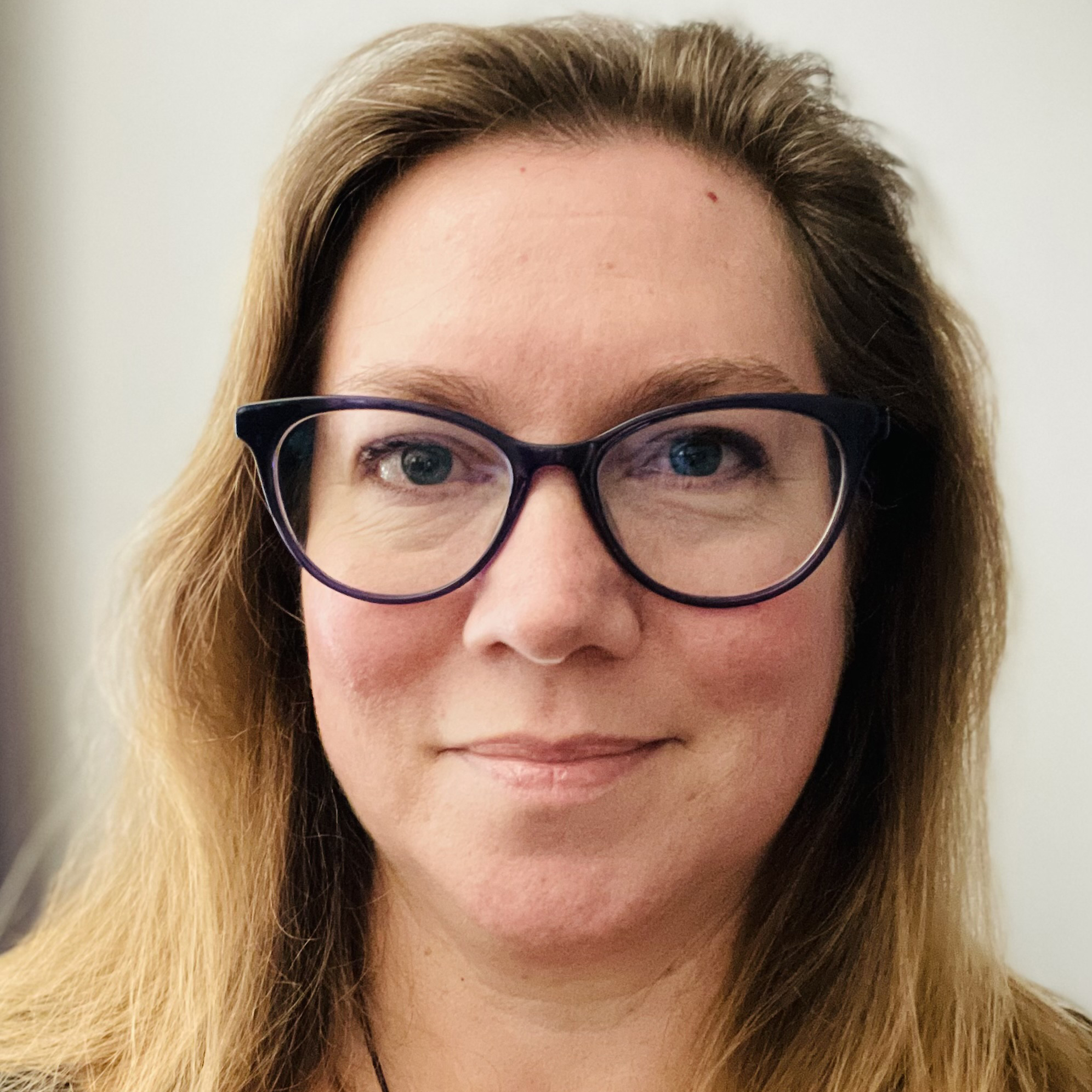
Kim O'Cain (Panelist)
President
Kim O’Cain is President of O’Cain Consulting, a water conservation consulting firm in Santa Monica, CA with over twenty years of experience developing and implementing water conservation and efficiency programs, policies, and outreach for public agencies and businesses. Before starting her consulting firm in 2017, she managed the City of Santa Monica’s water conservation unit including the adoption and enforcement of green building and water neutrality ordinances and drought management. Kim is also an Adjunct Professor at Santa Monica College teaching Sustainable Systems and Technology courses and on the APA Water and Planning Network Steering Committee.
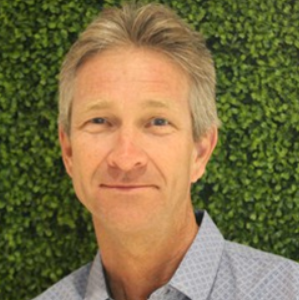
Ron Burke
CEO
Mr. Burke became the CEO and President of the Alliance for Water Efficiency on March 22, 2021. Ron spent the first twenty years of his career working on environmental policy and programs as an Environmental Scientist for the U.S. EPA, the Environmental Health Director and Deputy Executive Director for the American Lung Association of Metropolitan Chicago, the Associate Director for the Illinois EPA, and Midwest Office Director for the Union of Concerned Scientists. More recently, he was Executive Director of the Chicago-based Active Transportation Alliance for nine years. Mr. Burke earned an M.S. from Washington University’s Department of Engineering and Policy and did his undergraduate work in life sciences at the University of Illinois, Urbana-Champaign.
 May 20, 2022 09:00
May 20, 2022 09:00Both Congresswoman Leger Fernandez and Congresswoman Stansbury have extensive experience with New Mexico's water issues. Advocating for tribal rights, acequias, critical infrastructure as well as teaching New Mexicans about water issues, we are fortunate to have two U.S. Representatives who are savvy about water. This session will address our problems here in New Mexico and the Western states and we'll learn what our delegates are doing at the federal level.
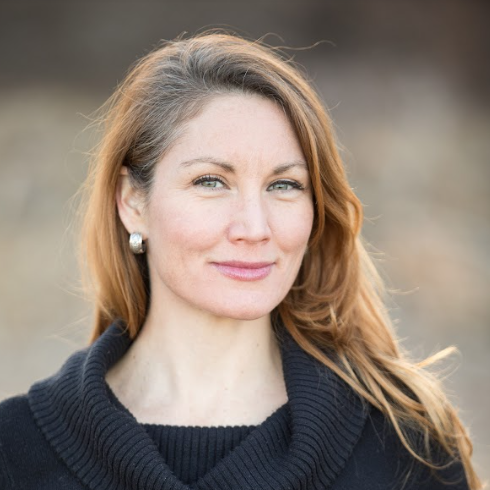
Melanie Stansbury (Speaker)
U.S. Representative
Born and raised in New Mexico, Congresswoman Melanie Stansbury leads with determination and compassion. She has dedicated her career to finding solutions to water issues, poverty, and climate change — representing New Mexico in the Legislature and now in Congress. She is a champion of efforts to address hunger, food, and water insecurity, conservation and climate change, and economic development and recovery. Stansbury worked in communities across the state as a STEM educator, researcher on land and water issues, and served as a former staffer in the U.S. Senate Committee on Energy and Natural Resources and the White House Office of Management and Budget. As the Congresswoman from New Mexico’s 1st Congressional District, she is working hard to lift up the voices of our communities and tackle our biggest challenges—from economic development, to food and water security, to climate change.
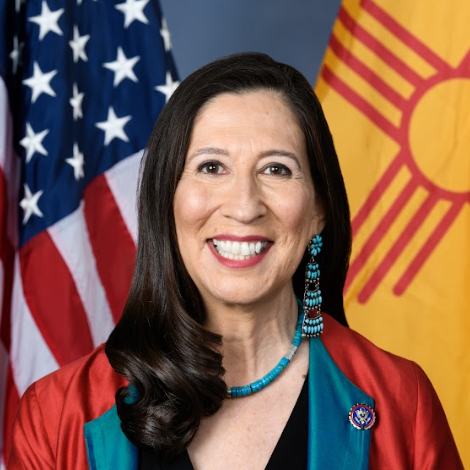
Teresa Leger Fernández (Speaker)
Congresswoman
Congresswoman Teresa Leger Fernández represents New Mexico’s 3rd Congressional District. In Washington, she holds a leadership role with the Congressional Hispanic Caucus as Freshman Representative. Congresswoman Leger Fernández serves as chair of the Subcommittee for Indigenous Peoples of the United States for the 117th Congress. She has also been appointed to the House Committee on Education and Labor, the House Committee on Natural Resources, and the Committee on House Administration.
She is a 17th generation Northern New Mexican. Before coming to Congress, Leger Fernández worked as an attorney and advocate, and won important legal battles to advance voting rights, promote tribal sovereignty, and protect our environment and acequia waters. She has helped secure nearly a billion dollars for, and then helped build, schools, rural health clinics, broadband, businesses, affordable housing and critical infrastructure for New Mexico. Leger Fernández was also a Clinton and Obama presidential appointee and worked as a White House Fellow on housing issues and as Vice-Chair of the Advisory Council on Historic Preservation.
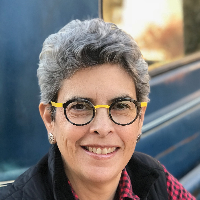
Carol Romero-Wirth (Moderator)
City Councilor
Carol Romero-Wirth is serving her first term as a Santa Fe City Councilor.
Carol’s New Mexico roots go back generations from Mora, New Mexico. She grew up in Colorado and graduated from Colorado College with a bachelor’s degree in Political Science. Carol holds a master’s degree in Public Policy from the Lyndon B. Johnson School of Public Affairs at the University of Texas in Austin. Her law degree is from the University of New Mexico. She was admitted to the New Mexico Bar in 1998.
Over the last thirty years Carol’s work has focused in public policy, government and politics. She served as a commissioner on the City Charter Review Commission, was the first associate director at Think New Mexico, and she has also worked as a public policy consultant on water, environment and sustainability projects. In addition, she worked for the New Mexico Legislature as a bill drafter and professional staff at the Legislative Council Service.
 May 20, 2022 10:30
May 20, 2022 10:30International urban environments are a major contributor to the current water crisis. The same impermeable surfaces in cities designed to efficiently move stormwater away from high traffic areas are the same surfaces that prevent groundwater from
recharging and moving various pollutants, e.g. petroleum products,microplastics, pesticides/herbicides, heavy metals, E. coli, etc., downstream and away from populated areas. However, Rain Gardens allow for the capture of stormwater and pollutants to infiltrate the ground downstream and seep through
plants, soil microbes, and soil fungi. This session will discuss current projects within the City of Santa Fe, concepts of bioremediation, and a tour of different Rain Garden sites at this year's NGWS 2022.

Reese Baker
Owner
Reese Baker, owner and founder of The RainCatcher Inc., is a certified permaculture designer who has been involved with green building, organic farming, water harvesting, erosion control, ecological restoration and permaculture in the Santa Fe area for over 18 years. He currently owns The RainCatcher Inc. based out of Santa Fe, NM. He holds a B.S. in Biology/Botany from The University of New Mexico and is currently pursuing a Ph.D in Biology at The University of New Mexico with focus on the bioremediation of stormwater. He has also taught classes on water harvesting, permaculture, and erosion control at Ecoversity, Plants of the Southwest, Santa Fe Preparatory School, Quivira Coalition, Earthworks Institute, Arboretum Tome, Permaculture Institute, Santa Fe Botanical Gardens, and Santa Fe Community College.

Amanda Hatherly (Moderator)
Director
Amanda Hatherly is the Director for the Center of Excellence for Green Building and Energy Efficiency and New Mexico Energy$mart Academy at Santa Fe Community College. She teaches courses from the Building Performance Institute, the Residential Energy Services Network (RESNET) and the National Center for HealthyHousing and is the Principle Investigator for a National Science Foundation grant developing serious games related to building science. She also teaches a graduate course on Environmental Health for Boston Architecture College. She has a graduate degree in Educational Technology focusing on adult online course design.
 May 20, 2022 10:30
May 20, 2022 10:30New, single-family dwellings in the southwest is increasing pressure on existing water supplies. Even though these properties have the security of a centralized water system, they can be designed and built to use little to no potable water in areas currently prone to drought. This session will review the strategies taken to get to a nearly net-zero water home. It's all in the details.

Doug Pushard
Founder
Doug is a lifetime American Rainwater Catchment System Association (ARCSA) member, an Accredited Professional and an ex-Board member of ARCSA. He is a prolific writer and his articles have appeared in The New York Times, Water Efficiency Magazine, Home Power, Taos News and Water News, among others. He also has a regular monthly column in the Santa Fe New Mexican. He is co-author of two water studies that have been widely published: “Rainwater Harvesting Industry Market Size and Trends” and “First-Ever Long-Term Water Conservation Rebate Study”. Doug is also a Co-Chair of the Next Generation Water Summit.

Steve Onstad (presenter)
Founder
Steve is the Founder of EverGreen Building Solutions, LLC, which provides green building services including building science consulting, Home Energy Rating System analysis, Santa Fe green code compliance, Sustainable Building Tax Credit application assistance and LEED compliance assistance. Steve is a RESNET/HERS and Green Rater, LEED Green Rater, Passive House Institute PHIUS+Rater, National Green Building Standard Green Verifier, Water Efficiency Rating Score (WERS) Verifier, EPA WaterSense Inspector, Energy Star Partner and DOE Zero Energy Ready Home Partner. Steve has a Bachelor of Science in Business with a minor in Engineering, Magna cum Laude, from the University of Colorado and a Masters of Business Administration from New York University.
 May 20, 2022 11:30
May 20, 2022 11:30Water reuse is not an option in the west. Graywater is often an untapped resource even though it can extend our existing water supplies. This presentation will highlight key western states and show how regulations can promote or discourage the uptake of this critical resource. We’ll also cover programs, incentives, and the future direction of the graywater market.

Doug Pushard (Panelist)
Founder
Doug is a lifetime American Rainwater Catchment System Association (ARCSA) member, an Accredited Professional and an ex-Board member of ARCSA. He is a prolific writer and his articles have appeared in The New York Times, Water Efficiency Magazine, Home Power, Taos News and Water News, among others. He also has a regular monthly column in the Santa Fe New Mexican. He is co-author of two water studies that have been widely published: “Rainwater Harvesting Industry Market Size and Trends” and “First-Ever Long-Term Water Conservation Rebate Study”. Doug is also a Co-Chair of the Next Generation Water Summit.
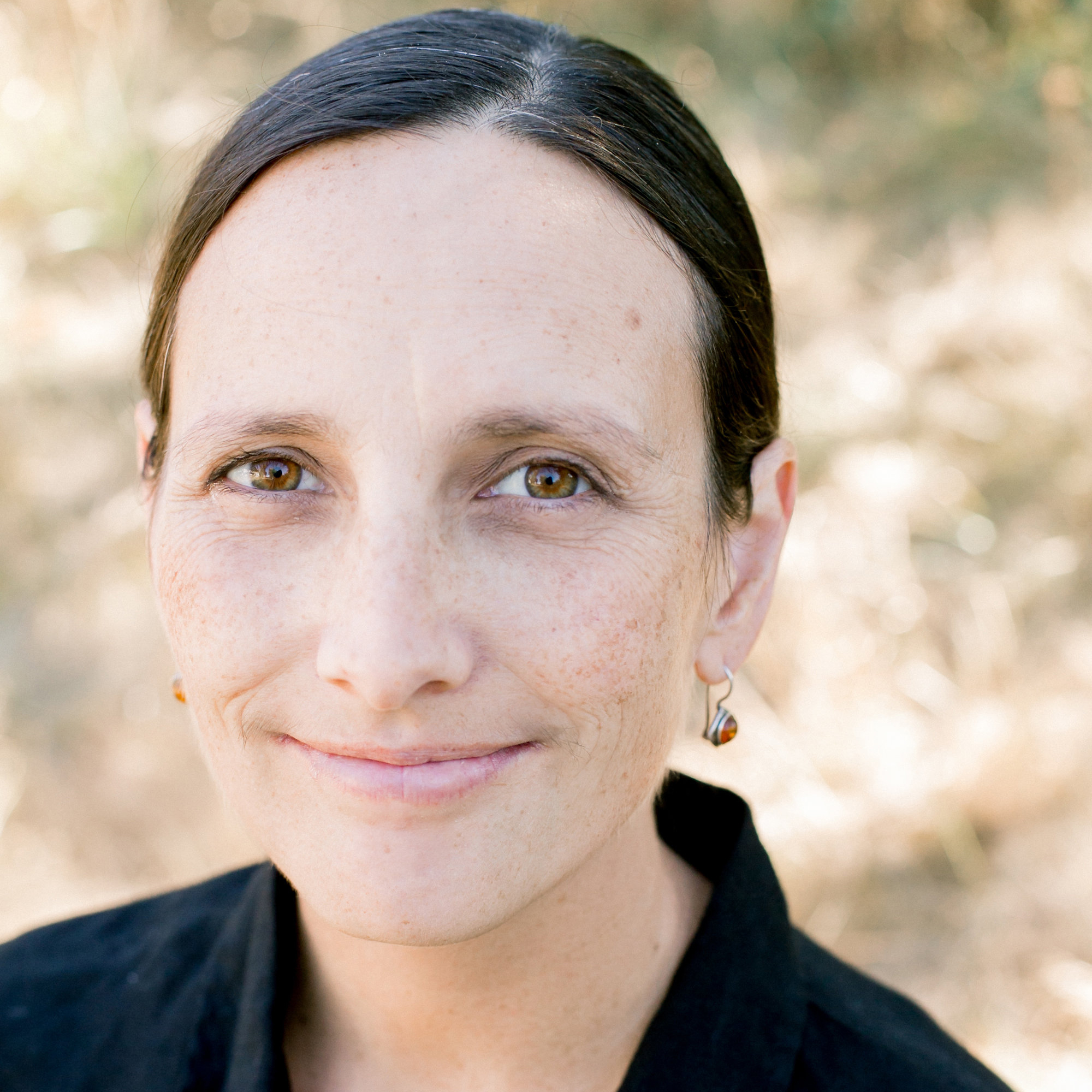
Laura Allen (Panelist)
Co-Founder
Laura Allen is the co-founder of Greywater Action, where she educates about sustainable water solutions through trainings and online classes. She authored Greywater, Green Landscape and The Water-Wise Home: How to Capture, Conserve, and Reuse Water in Your Home and Landscape. Laura is a technical advisory committee member for the International Association of Mechanical and Plumbing Officials’ (IAPMO) Water Efficiency Standard (WE-Stand), and is also a board member of the California Onsite Water Association (COWA).

Charlie Alcorn (Moderator)
Program Manager
Charlie Alcorn is a Program Manager and Educator with Watershed Management Group where he works with programs based in Tucson and Phoenix Metropolitan. As an educator with WMG he leads educational workshop installations for low-cost rainwater and greywater harvesting systems, is an instructor for their water harvesting certification course, and has given online presentations on water harvesting and sustainable living in arid and semi-arid cities. Charlie graduated with a degree in Physics from Dickinson College in Carlisle, Pennsylvania. He has worked in communications and as an educator at environmental nonprofits and in the
wastewater and biosolids industry. In 2016, Charlie moved to Tucson, Arizona where he received a certificate for Water Policy from the University of Arizona. He is a certified water harvesting design practitioner with Watershed Management Group.
 May 20, 2022 11:30
May 20, 2022 11:30This session will hone in on innovative approaches being implemented at the state and local levels in Colorado, Utah, and Nevada, in order to transform acres of non-essential turf into verdant and thriving water wise landscaping. Non-essential turf, or non-functional turf, is high water use turfgrass where the only person walking on it, is the person maintaining it. Today, turfgrass is the number one irrigated “crop” in the United States. Moreover, in the West, outdoor water use that mostly irrigates turf,accounts for approximately half of all municipal water use. Large-scale turf replacement and limitations on new, non-essential turf present two of the largest municipal water conservation opportunities in
the West. In recent years, Western states have begun to take unprecedented action to remove and limit turf in their communities. In this session, we’ll learn about Southern Nevada Water Authority’s long-standing and successful Water Smart Landscape Rebate to encourage turf replacement, along with an even more ambitious law enacted by the Nevada legislature in 2021 to prohibit the use of Colorado River water delivered by SNWA member agencies to irrigate nonfunctional grass. We’ll
further discuss the still undecided outcome of Utah’s 2022 legislative session which included several key bills to expand outdoor water conservation. If passed, we could see the development of greater water conservation efforts in Utah’s fast-growing cities, including funding for a statewide turf replacement
program, limits on nonessential turf installed on state properties, and requirements to better integrate water and land use. We’ll also learn about Colorado’s recent legislative and local efforts to expand turf replacement programs and what this could mean for Colorado’s water future.

Lindsay Rogers
Water Policy Analyst
Lindsay Rogers is a Water Policy Analyst for
Western Resource Advocates, where she develops and advocates for sustainable
water management policies and programs at the state and local levels, and
provides technical expertise to build climate resilient, equitable, and vibrant
communities. Much of this work is focused on the intersection of water and land
use planning with the goal of supporting communities to grow as water
efficiently as possible. Previously, she was the Colorado Basin Program Manager
at WaterNow Alliance, working directly with municipal water decision-makers to
advance sustainable water policies. Lindsay serves on the Board of Colorado
WaterWise and as the organization's Educational Events Chair, on the City of
Edgewater’s Sustainability Board as the Land & Water Chair, and is a member
of the Colorado Water & Land Use Planning Alliance. She is a 2021 graduate
of Water Education Colorado’s Water Leaders Program and is certified as a
Qualified Water Efficiency Landscaper.

Zane Marshall (Panelist)
Director
Zane Marshall is the Director of the Water Resources Department of the Southern Nevada Water Authority (SNWA), where he has worked for the past 26 years. A Las Vegas native, Zane leads six divisions that oversee the management of water, land and environmental resources, and the implementation of environmental restoration and compliance, conservation, climate change and sustainability programs.
Zane has a Bachelor of Arts in Environmental Studies, and a Master of Arts in Science in Biology and Statistics from the University of Nevada, Las Vegas. He is also a 2014 graduate of the Kenan-Flagler Business School’s Water and Waste Water Leadership Center.

Mark Stratford
General Counsel
Mark Stratford serves as General Counsel for the Jordan Valley Water Conservancy District. Prior to working for Jordan Valley, he was Deputy City Attorney for Ogden City, Utah. He worked for Ogden from 2007 to 2021 where he provided legal review for a broad range of land use issues, participated in the Utah Land Use Task Force and advised both the city planning department and the Ogden City Planning Commission. Before working for Ogden City, Mark was an assistant attorney general representing the Utah State Engineer in water rights general adjudication cases throughout the state. Mark has been a member of the Utah Water Task Force since 2009 and represents the Utah League of Cities and Towns on the Utah Watersheds Council. He was a member of the State Water Plan Advisory Committee, which assisted the Utah Division of Water Resources with the preparation of the 2021 Water Resources Plan. Mark was also a member of the HCR10 workgroup, which provided a range of suggestions on how to stabilize water levels in Great Salt Lake and served on the Governor’s Water Strategy Advisory Team in 2017. Mark graduated from Brigham Young University where he received his bachelor’s degree in History. He received his Juris Doctor degree from the University of Utah S.J. Quinney School of Law in 1995.
 May 20, 2022 13:15
May 20, 2022 13:15Multifamily housing development continues to grow regardless of the direction of the economy. As it is a higher population density approach, it also has a higher impact on infrastructure. This session will focus on multiple multifamily case studies and the strategies implemented to reduce water use, as well as the projected impact of water use. Additionally, there will be a discussion on how the projects were verified and how the "projected" water use compares to the "actual" water use.

Laureen Blissard
Technical Director
Laureen holds Bachelor's and Master's degrees in architecture from the University of Illinois and is a licensed architect in Illinois & Wisconsin as well as having received approval for reciprocal licensure across the country via NCARB certification. She has also built a successful 30-year+ practice in the design and construction of commercial buildings, multi-family projects, single family homes, and interiors. Additional experience includes ratings, inspections, and certification application processing for a variety of commercial & residential properties through LEED BD+C, LEED ID+C, LEED for Homes & LEED for Homes Mid-Rise, Energy Star Homes & Energy Star Multifamily High Rise, Enterprise Green Communities, and the WERS (Water Efficiency Rating Score). Other accreditations & certifications include USGBC LEED® for Homes QAD, RESnet/HERS Energy Rater, LEED for Homes Green Rater, LEED AP BD+C, LEED AP HOMES, USGBC LEED® Faculty™, and WERS Faculty & Verifier.

Paul Blissard
Co-owner
Mr. Blissard holds a Bachelor's degree from Arkansas State University and has built a long, successful career in the education industry. While an educator, he completed renovations and provided part-time construction services over a period of 15 years.
In 2010, his focus shifted to the construction industry full-time and included training with accreditation in multiple green building certification programs. As a BPI Building Analyst, RESNET Field Inspector and WERS Candidate, many of his projects have focused on multi-family certifications which includes water systems inspections and testing.
 May 20, 2022 13:15
May 20, 2022 13:15Rainwater catchment for irrigation is well understood and installed in tens of thousands of homes in the U.S. However, drinking rainwater is not as well understood, and yet it is a possibility that can assist us with our growing water needs. David will review what is required to
make these systems work and increase our water security and supply.
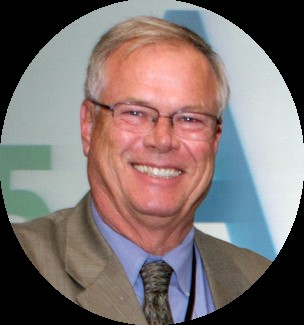
David Crawford
Owner
In 2000, David Crawford put his 22 years of experience in healthcare consulting, marketing, sales, and residential/commercial construction into a new company he named Rain Water System, Inc. His vision was to form a company that would address rainwater conservation and management as well as sustainable water applications and practices. Today that company—now known as Rainwater Management Solutions—provides design, consulting, and engineering solutions for rainwater and stormwater management to commercial and residential developers, engineering and architectural firms, and professionals in the agricultural field. To date, the Salem, Virginia-based company has designed and/or installed thousands of rainwater systems across North America. David is the current President of the American Rainwater Catchment Systems Association C-6 Trade association (ARCSA) and Chairmen of the board of the C-3 Foundation and is an ARCSA Accredited Professional. David was involved in writing Virginia’s first Rainwater Harvesting Manual used as an educational tool for many. He was also involved in writing the ARCSA Rainwater Harvesting Manual.
 May 20, 2022 14:15
May 20, 2022 14:15This session will highlight the La Paloma Apartment project. Property managers worked with the local water utility, its contractor, and a local landscaping company to replace apartment plumbing fixtures and upgrade the complex’s irrigation system. The property saved more than 5 million gallons of water within the first year, and the project paid for itself within two years, thanks in part to the utility’s rebate program.
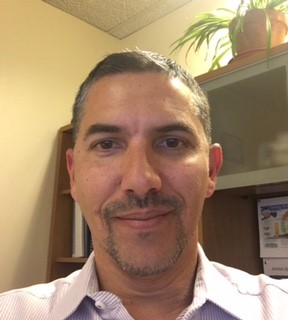
Carlos Bustos
Water Conservation Program Manager
Carlos A. Bustos, is the Water Conservation Program Manager for the Albuquerque Bernalillo County Water Utility Authority, with over 15 years of experience in the water resource field. Carlos has a unique mix of experience in water resource management, water efficiency and landscape best management practices. He is certified for public water system water level 2 operator and a qualified water efficient landscaper. His professional interests include efficient landscaping irrigation practices, unlocking the potential of personnel, system organization, building teams, and program implementation. Carlos holds degrees from the University of Puerto Rico in Economic Management and a Master’s Degree on Environmental Science focusing on urban planning and management of natural resources..

Doug Pushard (Moderator)
Founder
Doug is a lifetime American Rainwater Catchment System Association (ARCSA) member, an Accredited Professional and an ex-Board member of ARCSA. He is a prolific writer and his articles have appeared in The New York Times, Water Efficiency Magazine, Home Power, Taos News and Water News, among others. He also has a regular monthly column in the Santa Fe New Mexican. He is co-author of two water studies that have been widely published: “Rainwater Harvesting Industry Market Size and Trends” and “First-Ever Long-Term Water Conservation Rebate Study”. Doug is also a Co-Chair of the Next Generation Water Summit.
 May 20, 2022 15:15
May 20, 2022 15:152022 Next Generation Water Summit has brought over 30 speakers covering a wide range of water-related topics. In this session, we will recap the top 5 key takeaways from the Summit co-founders and solicit input for the 2023 NGWS.

Doug Pushard
Founder
Doug is a lifetime American Rainwater Catchment System Association (ARCSA) member, an Accredited Professional and an ex-Board member of ARCSA. He is a prolific writer and his articles have appeared in The New York Times, Water Efficiency Magazine, Home Power, Taos News and Water News, among others. He also has a regular monthly column in the Santa Fe New Mexican. He is co-author of two water studies that have been widely published: “Rainwater Harvesting Industry Market Size and Trends” and “First-Ever Long-Term Water Conservation Rebate Study”. Doug is also a Co-Chair of the Next Generation Water Summit.

Glenn Schiffbauer
Executive Director
Glenn Schiffbauer, Executive Director of the Santa Fe Chapter of the New Mexico Green Chamber of Commerce, is a native New Mexican. He received his BBA from New Mexico State University and his MBA from the Robert O. Anderson School of Management at the University of New Mexico. After 16 years in management at renowned Rancho Encantado, he started two small businesses in Santa Fe. He also worked with his wife Kim as a consultant for businesses statewide in both marketing and public affairs. In 2005, he became a liaison and project manager for Robert Redford in New Mexico working on a variety of projects from film to governmental to green construction. In October 2012, he became Executive Director for the newly founded Santa Fe Chapter of the New Mexico Green Chamber of Commerce. Glenn is also a Co-Chair of the Next Generation Water Summit.

Mike Collignon
Executive Director
Mike Collignon is the Executive Director of the Green Builder® Coalition, an organization he co-founded in 2010. He engages in national and state-level advocacy and publishes regular content for Green Builder® Media. Mike is also the Chair of the WERS Development Group and the Co-Chair of the Next Generation Water Summit. Finally, he has served as the voice of Green Builder® Media’s online and in-person events from 2012–present.
 May 20, 2022 10:30
May 20, 2022 10:30This presentation and discussion will focus on 2022 water management legislation and an overview of forward-looking actions being taken to reform water governance structures, agencies, and mechanisms to secure our waters future.

Theresa Cardenas (presenter)
Civic Engagement and Policy Manager
Theresa is a native New Mexican born and raised in Santa Fe, and her farming, ranching and native family roots date to New Mexico Spanish and Pueblo settlements. She has over 25 years of dedicated experience working as a social entrepreneur, home builder and as a science advocate to improve and sustain the natural, cultural, and built environment for future generations. She has expertise in public policy at the local, state, and federal level at the intersection of air, water, climate, electricity, and resiliency. She is currently a Civic Engagement and Policy Manager at New Mexico First, a nonpartisan catalyst for positive change by conducting independent research, engaging New Mexicans in policy, and enabling action. She formally served as a climate and energy outreach consultant to the Union of Concerned Scientists. In her role she worked in partnership to use independent science, analysis, and effective advocacy to create practical solutions to make New Mexico resilient and
sustainable. She holds a bachelor’s degree from the University of New Mexico and a masters of sustainability degree from Arizona State University with a concentration in water resources.

Glenn Schiffbauer (moderator)
Executive Director
Glenn Schiffbauer, Executive Director of the Santa Fe Chapter of the New Mexico Green Chamber of Commerce, is a native New Mexican. He received his BBA from New Mexico State University and his MBA from the Robert O. Anderson School of Management at the University of New Mexico. After 16 years in management at renowned Rancho Encantado, he started two small businesses in Santa Fe. He also worked with his wife Kim as a consultant for businesses statewide in both marketing and public affairs. In 2005, he became a liaison and project manager for Robert Redford in New Mexico working on a variety of projects from film to governmental to green construction. In October 2012, he became Executive Director for the newly founded Santa Fe Chapter of the New Mexico Green Chamber of Commerce. Glenn is also a Co-Chair of the Next Generation Water Summit.
 May 20, 2022 13:15
May 20, 2022 13:15Water demand is growing in the city of Santa Fe as well as the County. These two areas are managed by two different water agencies. Historically this has meant differing water conservation programs and messaging in these residents. Meetings have been occurring over the last year to bring about some cooperation between these two entities.This session will review the progress to date as well as discuss possible future.
Councilor Carol Romero-Wirth
City Councilor
Carol Romero-Wirth is serving her first term as a Santa Fe City Councilor. Carol’s New Mexico roots go back generations from Mora, New Mexico. She grew up in Colorado and graduated from Colorado College with a bachelor’s degree in Political Science. Carol holds a master’s degree in Public Policy from the Lyndon B. Johnson School of Public Affairs at the University of Texas in Austin. Her law degree is from the University of New Mexico. She was admitted to the New Mexico Bar in 1998. Over the last thirty years Carol’s work has focused in public policy, government and politics. She served as a commissioner on the City Charter Review Commission, was the first associate director at Think New Mexico, and she has also worked as a public policy consultant on water, environment and sustainability projects. In addition, she worked for the New Mexico Legislature as a bill drafter and professional staff at the Legislative Council Service.

Christine Chavez (Panelist)
Water Conservation Manager
Christine Y. Chavez has a background in water rights administration and energy & water conservation program management in the state of New Mexico. Christine is the Water Conservation Manager for the City of Santa Fe and is a certified Energy Auditor with the Building Performance Institute, Certified Landscape Irrigation Auditor with the Irrigation Association and Qualified Water Efficient Landscaper through EPA WaterSense. She is a graduate of New Mexico State University (B.S. in Environmental Science and M.S. in Biology).

Jesse Roach (panelist)
Director, City of Santa Fe Water
Jesse Roach P.E. Ph.D. is Director of City of Santa Fe Water, a position he has held since July 2019. At City of Santa Fe Water, Jesse has led a strategic planning effort, led development of a long range water resources planning process, and provided leadership in support of new water resources development. Jesse’s technical areas of expertise include municipal operations and demand, potential climate change impacts on water resources, surface water – groundwater dynamics, and agricultural operations and demand. Jesse was the technical lead on an assessment of potential climate change impacts to water resources, and possible resulting changes to water operations in the Upper Rio Grande basin (http://www.usbr.gov/WaterSMART/wcra/reports/urgia.html), and a contributor to technical evaluation of water utility scale adaptation to potential hydrologic impacts of climate change in Santa Fe (https://www.usbr.gov/watersmart/bsp/docs/finalreport/SantaFe/Santa-Fe-Basin-Final.pdf). Jesse holds Bachelor and Master’s degrees in Civil and Environmental Engineering from Stanford, and a Ph.D. from the University of Arizona in Hydrology and Water Resources.
 May 20, 2022 14:15
May 20, 2022 14:15
Christine Chavez
Water Conservation Manager
Christine Y. Chavez has a background in water rights administration and energy & water conservation program management in the state of New Mexico. Christine is the Water Conservation Manager for the City of Santa Fe and is a certified Energy Auditor with the Building Performance Institute, Certified Landscape Irrigation Auditor with the Irrigation Association and Qualified Water Efficient Landscaper through EPA WaterSense. She is a graduate of New Mexico State University (B.S. in Environmental Science and M.S. in Biology).
 May 20, 2022 11:30
May 20, 2022 11:30Water data is vital for effective water management, detecting changes and trends, as well as identifying and predicting potential shortages. As New Mexico is looking ahead to scarcer water resources and a more arid climate, water data is critical to the future of the state. Today, the 2019 Water Data Act is allowing
New Mexico State agencies and collaborators to lead and advocate for more publicly accessible water data. In this session, you will learn about the challenges and triumphs our state has faced, in order to open up water data as we work toward 21st century water management.

Stacy Timmons
Associate Director of Hydrogeology
Stacy Timmons is an Associate Director of Hydrogeology programs at the state geologic survey – the New Mexico Bureau of Geology and Mineral Resources, in Socorro at New Mexico Tech. As a hydrogeologist working with and managing the Aquifer Mapping Program for the last 16 years, Stacy has worked around the state on hydrologic and geologic research topics. Her work has ranged from collecting water quality and quantity data, mapping aquifers, and helping to build an
understanding of the state’s complex hydrogeology. In 2019, Stacy also began leading the implementation of the Water Data Act, a statute that works to improve management, sharing and integration of the state’s water data from multiple agencies and organizations.

Effective Policies, Enforcement Programs, Drought Communications: See how the California Water Efficiency Partnership, a chapter of the Alliance for Water Efficiency, updated its Water Shortage Toolkit to help its members align water shortage plans with new state regulations and create innovative and practical programs based on lessons learned from the previous drought.

Kim O'Cain (presenter)
President
Kim O’Cain is President of O’Cain Consulting, a water conservation consulting firm in Santa Monica, CA with over twenty years of experience developing and implementing
water conservation and efficiency programs, policies, and outreach for public agencies and businesses. Before starting her consulting firm in 2017, she managed the City of Santa Monica’s water conservation unit including the adoption and enforcement of green building and water neutrality ordinances and
drought management. Kim is also an Adjunct Professor at Santa Monica College teaching Sustainable Systems and Technology courses and she serves on the APA Water and Planning Network Steering Committee.

Mike Collignon
Executive Director
Mike Collignon is the Executive Director of the Green Builder® Coalition, an organization he co-founded in 2010. He engages in national and state-level advocacy and publishes regular content for Green Builder® Media. Mike is also the Chair of the WERS Development Group and the Co-Chair of the Next Generation Water Summit. Finally, he has served as the voice of Green Builder® Media’s online and in-person events from 2012–present.

Join Hope Medina and Mike Collignon as they resume their conversation from last year about water efficiency in the codes. They'll discuss a few select proposals to the I-Codes, including the content, intent and prospects for passage.

Hope Medina (Panelist)
Energy/Green Code Consultant
Hope Medina is an energy/green code consultant for Shums Coda Associates. She holds several International Code Council (ICC) certifications that she utilizes as a plan analyst, inspector, and instructor. The Colorado Chapter of ICC has a Code Development Committee for green codes and energy codes, and Hope is their Co-Chair. She has been involved with the development of the International Green Construction Code, and took the lead in the Green Code Collaboration Group which worked with stakeholders nationally on improving the 2015 International Green Construction Code (IgCC). Hope has served on the National Green Building Standard consensus committee for several cycles. She is a past co-chair of the water efficiency task group of the National Green Building Standard. Hope is past Vice Chair of ICC’s Sustainability Membership Council. She is a member of ICC’s Sustainability, Energy, and High-Performance Code Action Committee (SEHPCAC).

Mike Collignon
Executive Director
Mike Collignon is the Executive Director of the Green Builder® Coalition, an organization he co-founded in 2010. He engages in national and state-level advocacy and publishes regular content for Green Builder® Media. Mike is also the Chair of the WERS Development Group and the Co-Chair of the Next Generation Water Summit. Finally, he has served as the voice of Green Builder® Media’s online and in-person events from 2012–present.

Join Christoph Lohr, Dan Cole and Mike Collignon as they return for another conversation about standards and water efficiency. They'll discuss a few select proposals to the WE Stand, including the content, intent and prospects for passage.

Christoph Lohr (panelist)
VP of Strategic Initiatives
Christoph Lohr is IAPMO’s Vice President of Strategic
Initiatives. As part of his duties he provides industry leadership through participation in strategic industry
initiatives, and provide technical support to all IAPMO’s business units as needed. He has over a decade of experience in designing plumbing systems for healthcare, laboratory, hospitality, sports, and university projects. He has spoken at numerous conferences and has written over 50 articles and blog posts on a variety of topics including water, energy, legionella, medical gas, strategy, and leadership. Christoph's professional activities in the industry extend into multiple volunteer positions, of which he has also assumed leadership roles setting strategy and direction for teams. He is a distinguished graduate from the Virginia Military Institute, with a Bachelor of Science in Mechanical Engineering.

Mike Collignon (moderator)
Executive Director
Mike Collignon is the Executive Director of the Green Builder® Coalition, an organization he co-founded in 2010. He engages in national and state-level advocacy and publishes regular content for Green Builder® Media. Mike is also the Chair of the WERS Development Group and the Co-Chair of the Next Generation Water Summit. Finally, he has served as the voice of Green Builder® Media’s online and in-person events from 2012–present.

Dan Cole
Sr. Director of Technical Services
Daniel Cole is Sr. Director of Technical Services at International Association of Plumbing and Mechanical Officials (IAPMO). He was a licensed Journeyman Plumber in the State of Illinois and is currently a member of the American Society of Plumbing Engineers (ASPE). He received the ASPE Scientific Achievement Award in 2018. He has published several articles on Hunter’s curve and the fixture unit methodology. His research focus is on the plumbing investigations performed at the National Bureau of Standards (now NIST) with a particular interest in the work of Roy B. Hunter. He also has a focus on promoting water efficiency standards for the built environment.

The Santa Fe Water Resources Indicator (Indicator) is a quantitative tool used to summarize water availability to the City and County Water Utility systems and is being considered as a method to inform seasonal conservation policy. The Indicator could be used in the spring of each year to help define what water use restrictions City and County Utility customers should expect during the remainder of the year. The Indicator, as a transparent, quantitative definition of seasonal water resources availability in Santa Fe could be helpful for explaining to Utility customers
why they are or are not subject to water use restrictions in a given year. The Santa Fe Water Resources Indicator uses quantitative metrics to assign a local, Water Utility specific outlook
somewhere between zero (0) at the driest to ten (10) at the wettest. A value of zero (0) means the Utilities cannot provide
water in a sustainable way during the current year; supplies are inadequate, and the Utilities need extreme demand management in the current year. A value of ten (10) means that water can be provided sustainably to Water Utility customers in excess of projected demand during the current year. The Indicator is currently an idea being piloted, but could be used to guide conservation policy. Any conservation policy (demand management) that might be put in place as a function of Indicator level would be designed through a publicly informed conservation planning process.
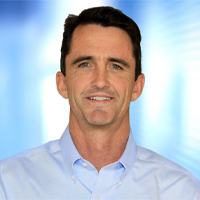
Jesse Roach (presenter)
Director, City of Santa Fe Water
Jesse Roach P.E. Ph.D. is Director of City of Santa Fe Water, a position he has held since July 2019. At City of Santa Fe Water, Jesse has led a strategic planning effort, led development of a long range water resources planning process, and provided leadership in support of new water resources development. Jesse’s technical areas of expertise include municipal operations and demand, potential climate change impacts on water resources, surface water – groundwater dynamics, and agricultural operations and demand. Jesse was the technical lead on an assessment of potential climate change impacts to water resources, and possible resulting changes to water operations in the Upper Rio Grande basin (http://www.usbr.gov/WaterSMART/wcra/reports/urgia.html), and a contributor to technical evaluation of water utility scale adaptation to potential hydrologic impacts of climate change in Santa Fe (https://www.usbr.gov/watersmart/bsp/docs/finalreport/SantaFe/Santa-Fe-Basin-Final.pdf).
Jesse holds Bachelor and Master’s degrees in Civil and Environmental Engineering from Stanford, and a Ph.D. from the University of Arizona in Hydrology and Water Resources.

We will discuss how energy production's water use and how transitioning to renewable energy will
help conserve more water.

Tom Fallgren
Vice President of Generation for PNM

Laney Brown
Vice President of Sustainability at AVANGRID
Laney Brown is currently the Vice President of Sustainability at AVANGRID. In this role, she leads the ESG+F strategy and coordination supporting AVANGRID’s aspiration to be the leading energy company in the US. She has experience in both regulated and unregulated energy including, most recently, leading the start-up of a new retail renewable energy business as well as leading efforts to develop Future Utility strategy. Laney served on the US Department of Energy's Electricity Advisor Committee (EAC) for 5 years. Laney has a double MBA with a focus on the Global Energy Industry from the University of Strathclyde in Scotland and the Universidad Pontificas Comillas in Madrid, Spain.
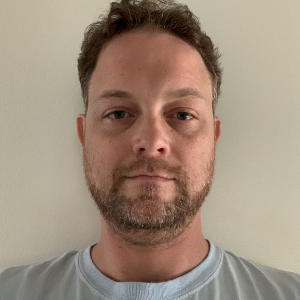
Adam Cernea Clark
Senior Manager in Environment and Natural Resources
Adam Cernea Clark is a senior manager in environment and natural resources at Pattern Energy. At Pattern, Adam’s work focuses on large-scale wind projects and high-voltage transmission lines and deals with complex permitting challenges relating to public lands, species permitting, state regulatory processes, and stakeholder relations. Adam also contributes to Pattern’s participation in environmental policy at the state and national level. Adam received a Bachelors in Arts in English from Kenyon College as well as a Juris Doctor from Northeastern University School of Law and a Masters in Environmental Law and Policy from Vermont Law School and is a non-practicing member of the New York Bar.

Amanda Hatherly (Moderator)
Director
Amanda Hatherly is the Director for the Center of Excellence for Green Building and Energy Efficiency and New Mexico Energy$mart Academy at Santa Fe Community College. She teaches courses from the Building Performance Institute, the Residential Energy Services Network (RESNET) and the National Center for HealthyHousing and is the Principle Investigator for a National Science Foundation grant developing serious games related to building science. She also teaches a graduate course on Environmental Health for Boston Architecture College. She has a graduate degree in Educational Technology focusing on adult online course design.

This session has become a bit of a tradition at the Summit, as Green Builder Coalition staff will recap the past year of WERS Program activities. They'll also give attendees a preview of the upcoming 12-18 months.

Mike Collignon
Executive Director
Mike Collignon is the Executive Director of the Green Builder® Coalition, an organization he co-founded in 2010. He engages in national and state-level advocacy and publishes regular content for Green Builder® Media. Mike is also the Chair of the WERS Development Group and the Co-Chair of the Next Generation Water Summit. Finally, he has served as the voice of Green Builder® Media’s online and in-person events from 2012–present.

Laureen Blissard
Technical Director
Laureen holds Bachelor's and Master's degrees in architecture from the University of Illinois and is a licensed architect in Illinois & Wisconsin as well as having received approval for reciprocal licensure across the country via NCARB certification. She has also built a successful 30-year+ practice in the design and construction of commercial buildings, multi-family projects, single family homes, and interiors. Additional experience includes ratings, inspections, and certification application processing for a variety of commercial & residential properties through LEED BD+C, LEED ID+C, LEED for Homes & LEED for Homes Mid-Rise, Energy Star Homes & Energy Star Multifamily High Rise, Enterprise Green Communities, and the WERS (Water Efficiency Rating Score). Other accreditations & certifications include USGBC LEED® for Homes QAD, RESnet/HERS Energy Rater, LEED for Homes Green Rater, LEED AP BD+C, LEED AP HOMES, USGBC LEED® Faculty™, and WERS Faculty & Verifier.






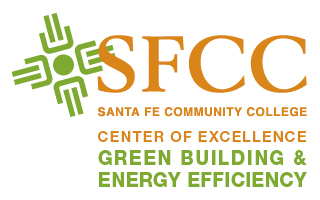
Our records show you've registered with this email already. If you would like to complete the registration, please proceed for payment or re-register
Our records show you've registered with this email already. If you would like to complete the registration, please proceed for payment or re-register

